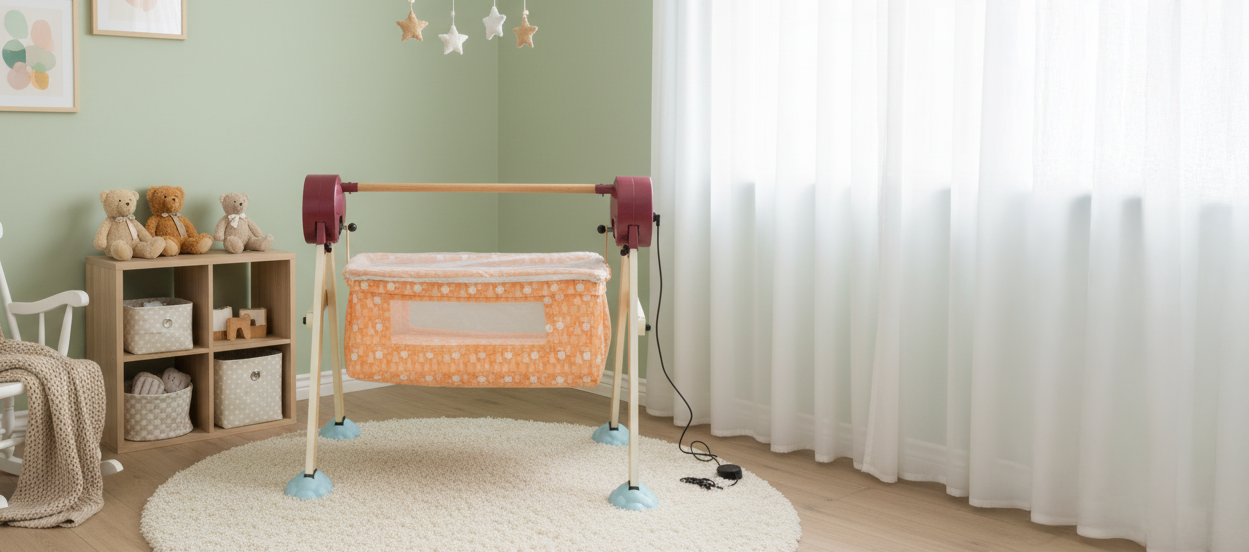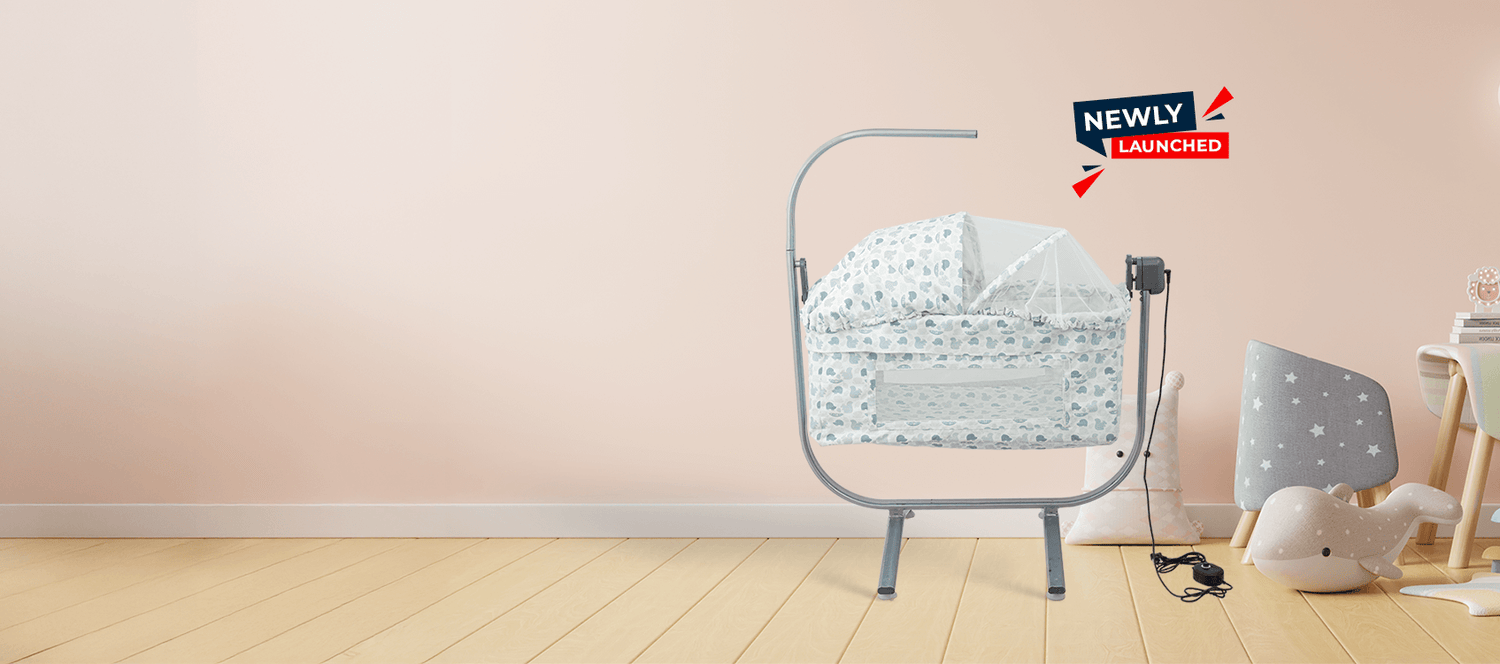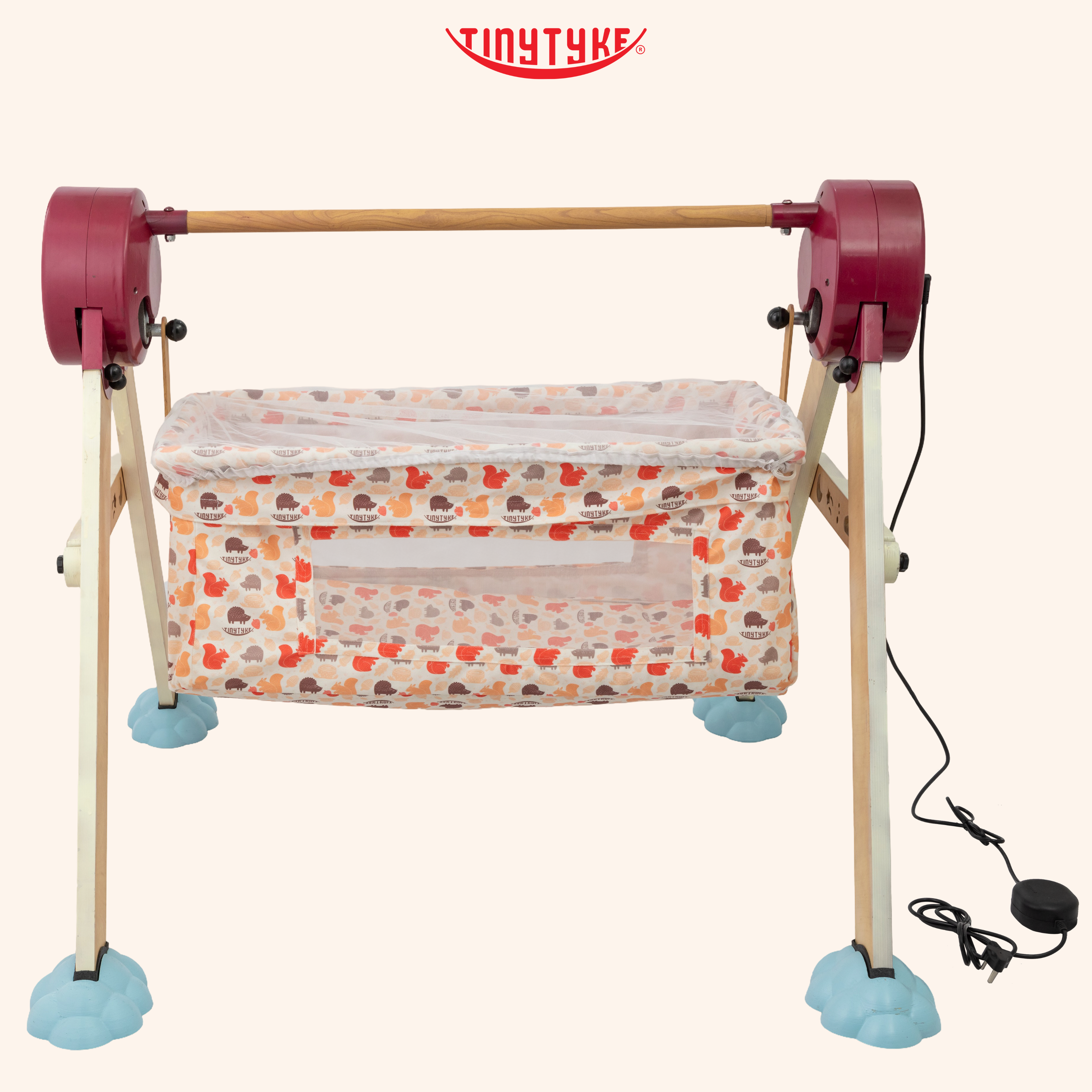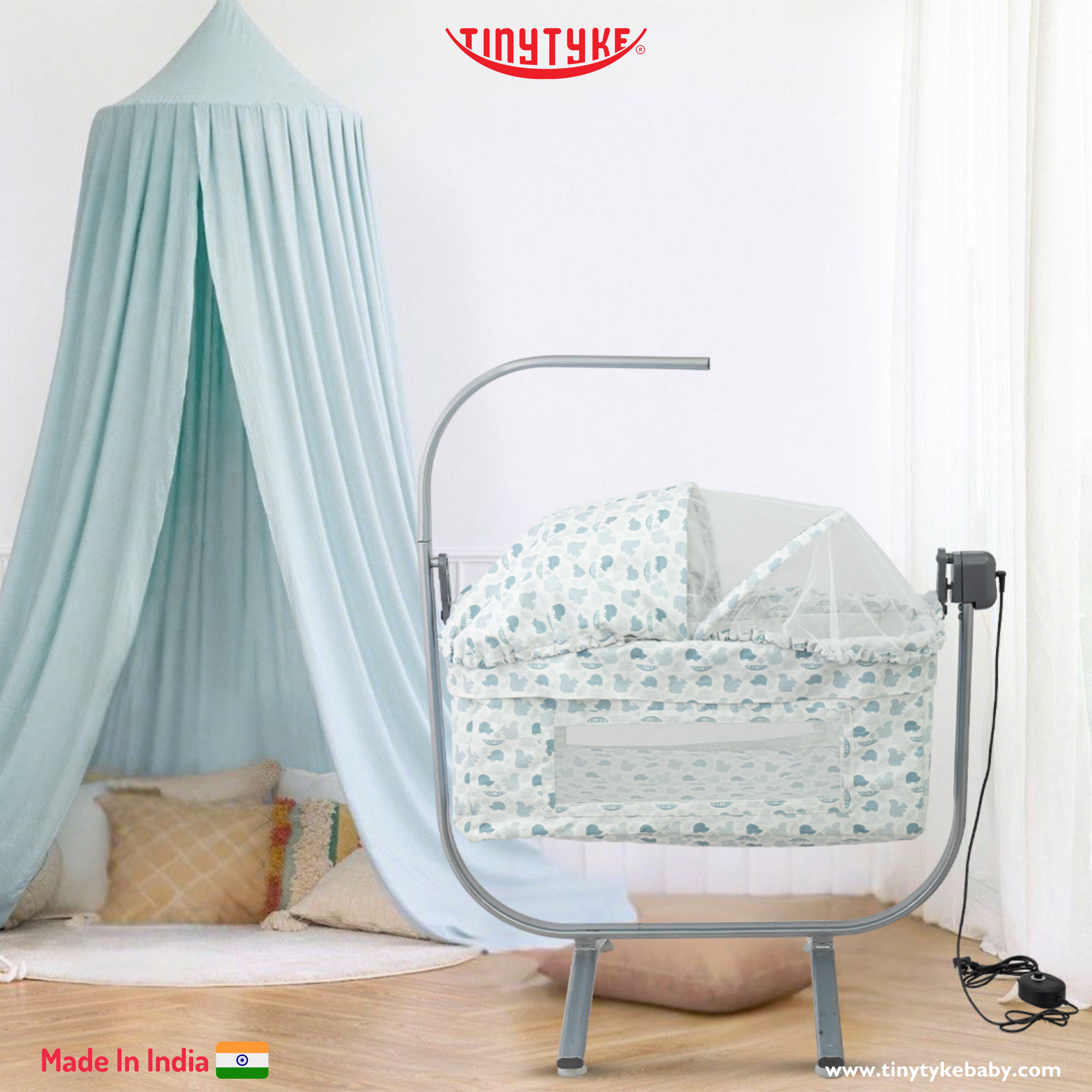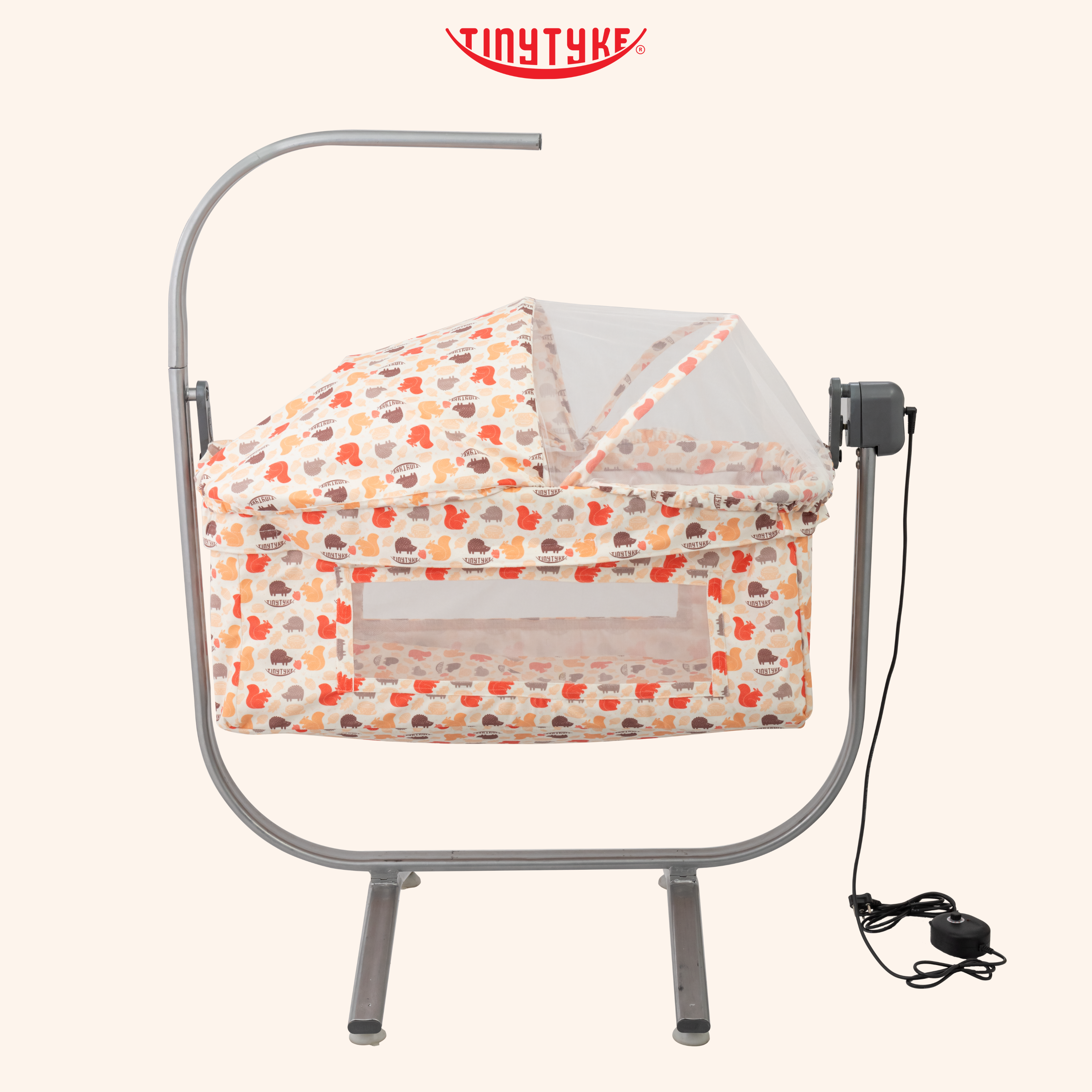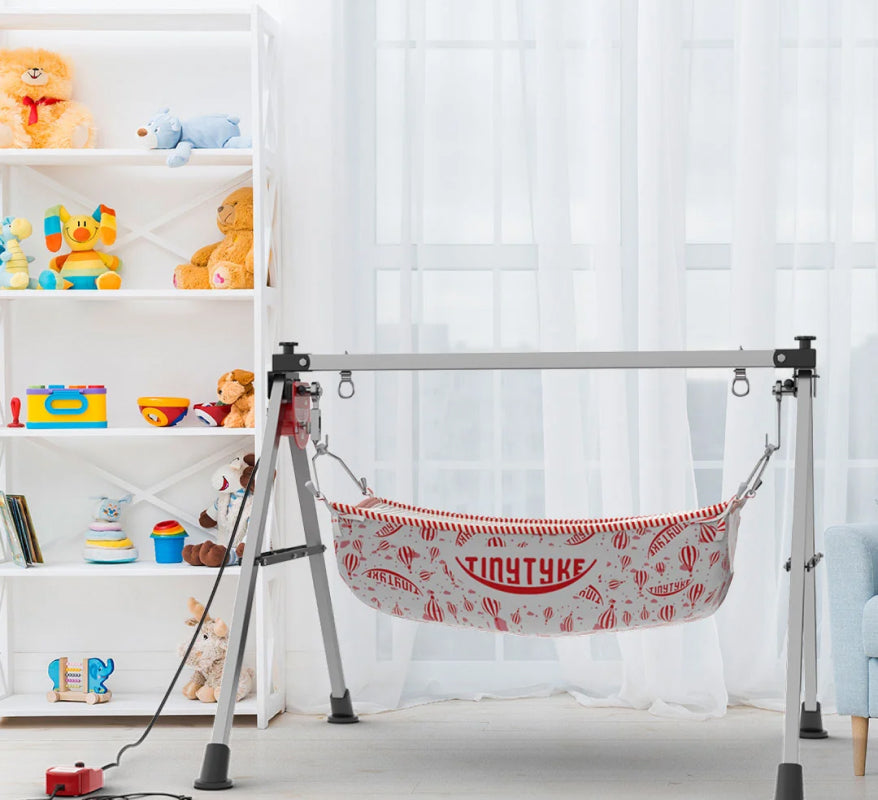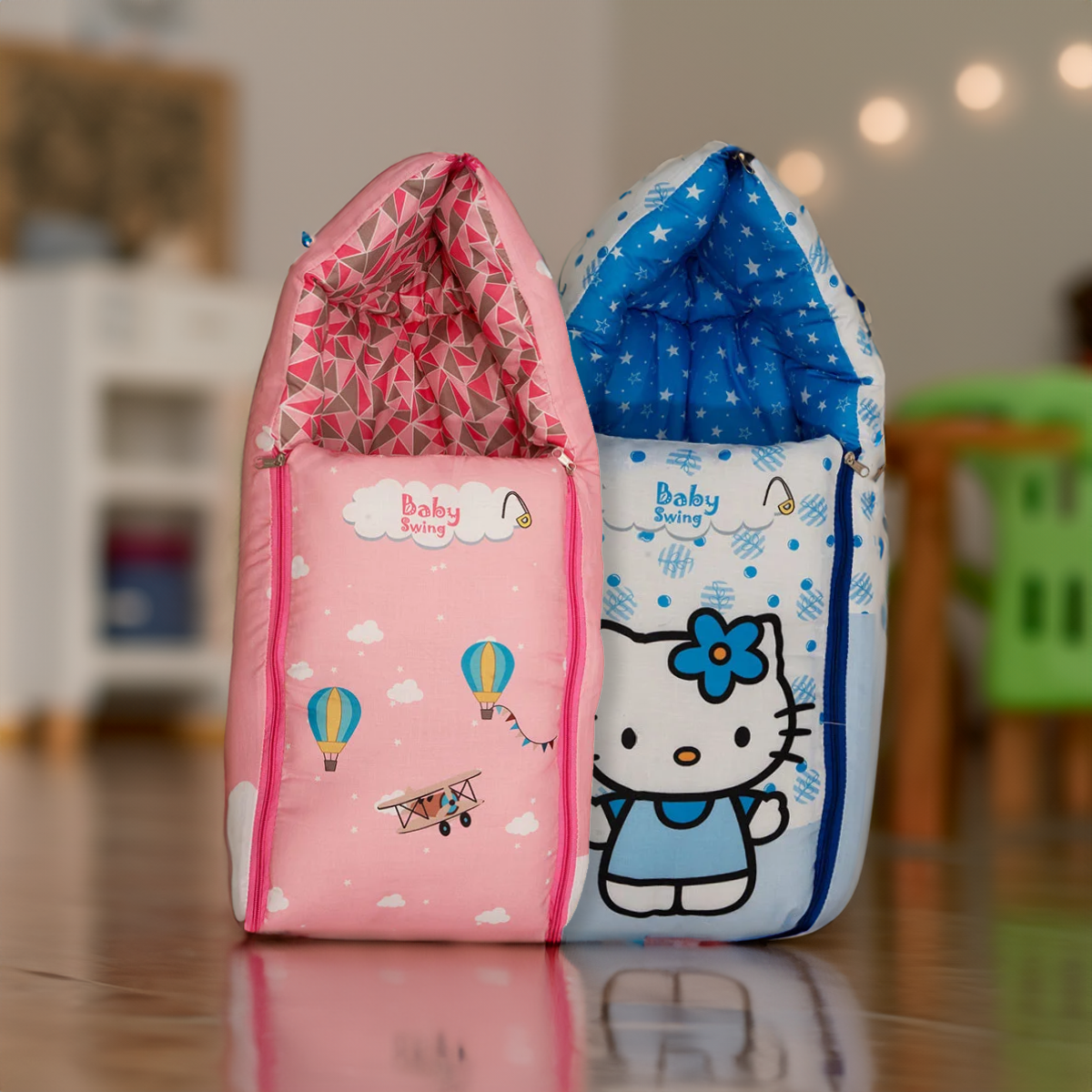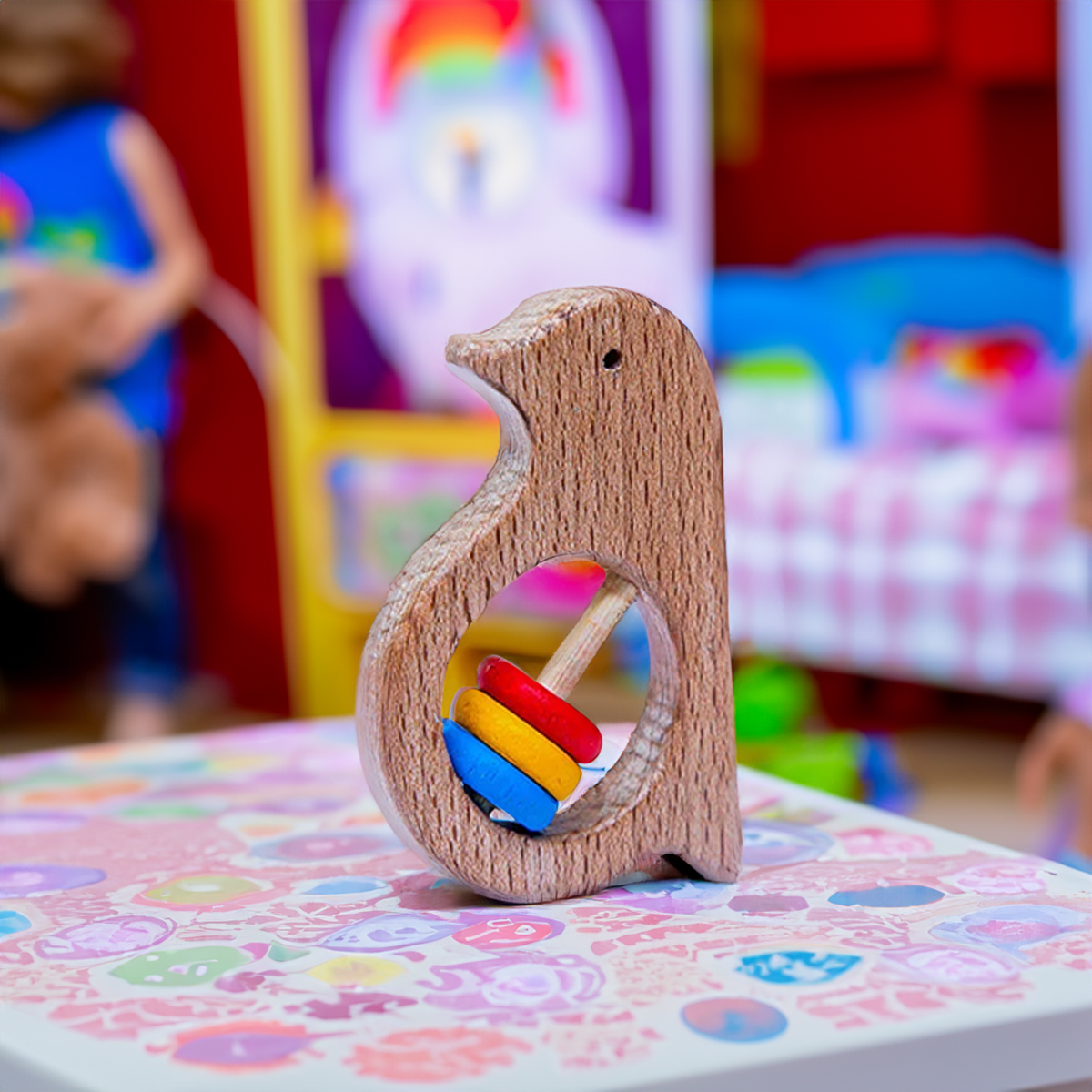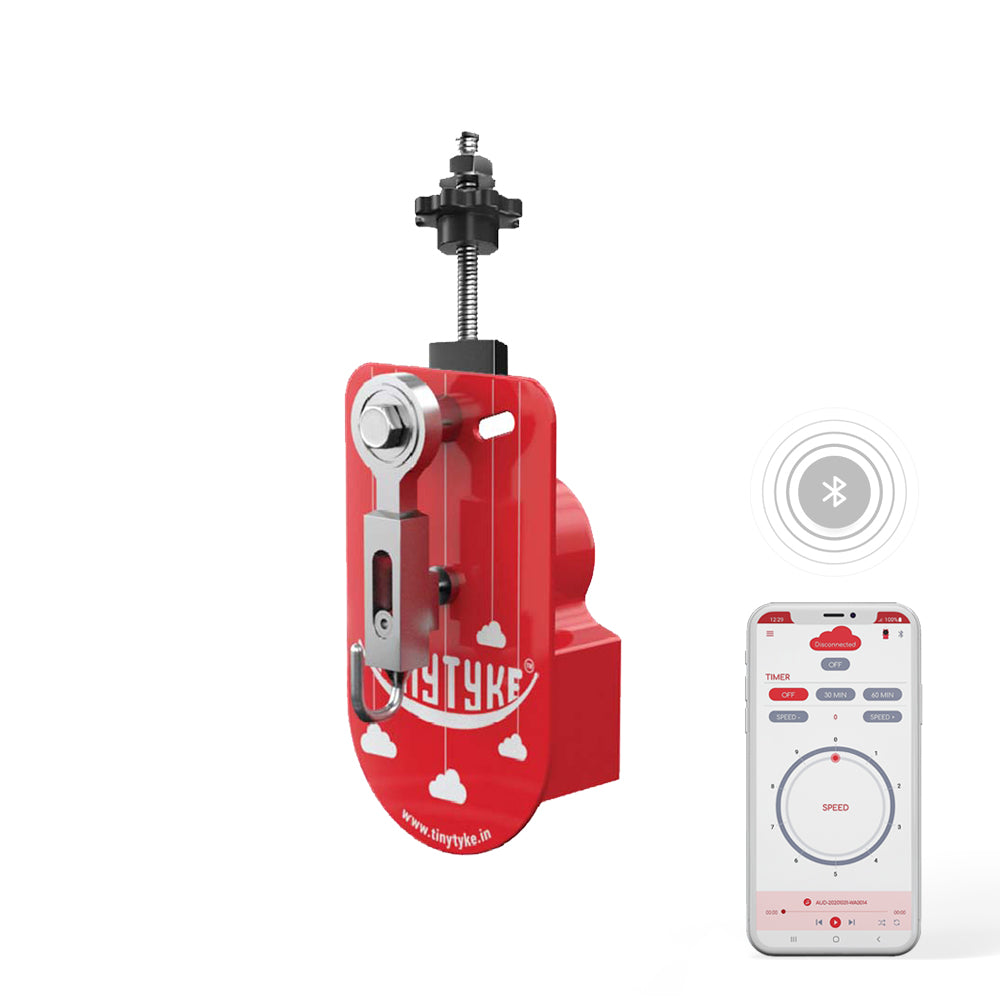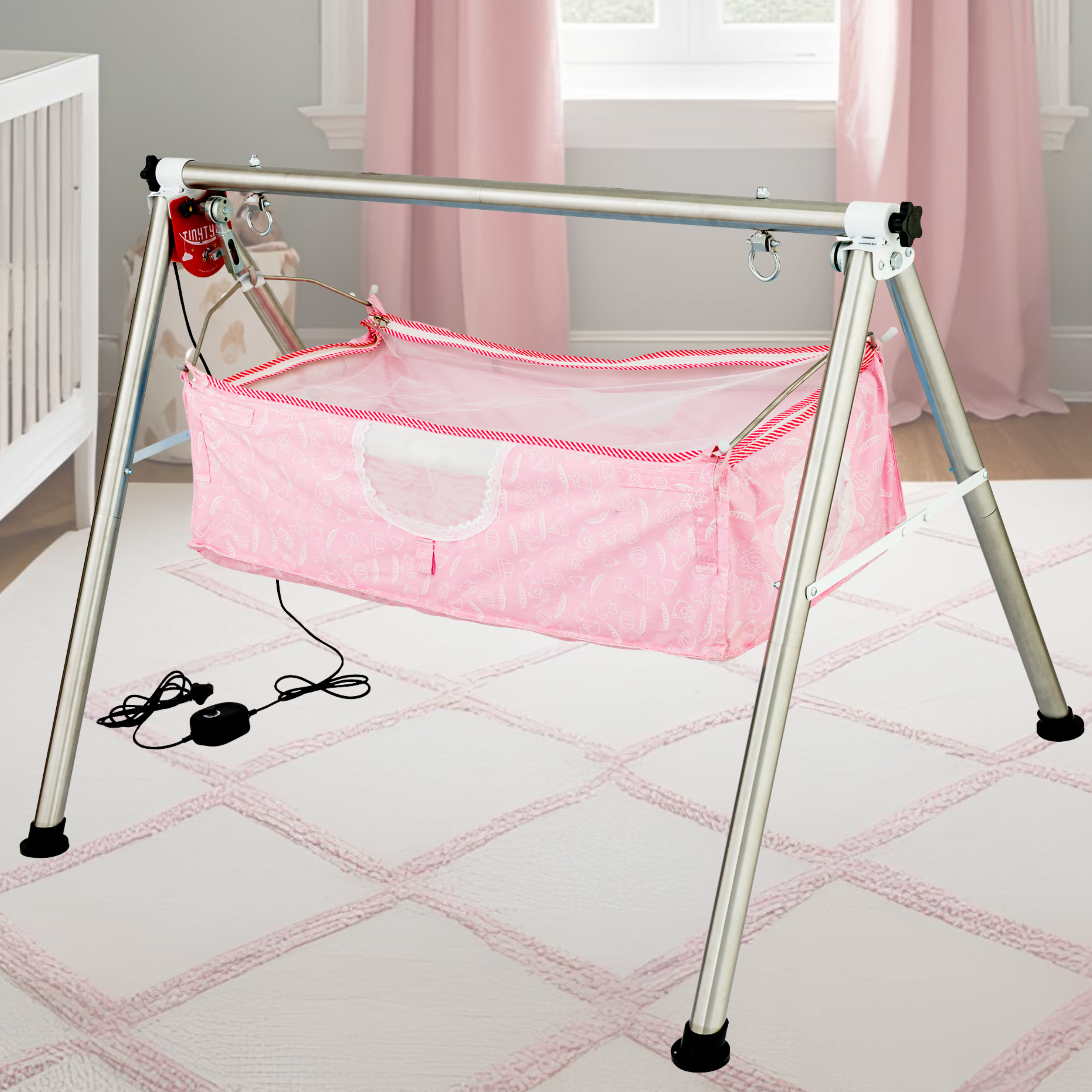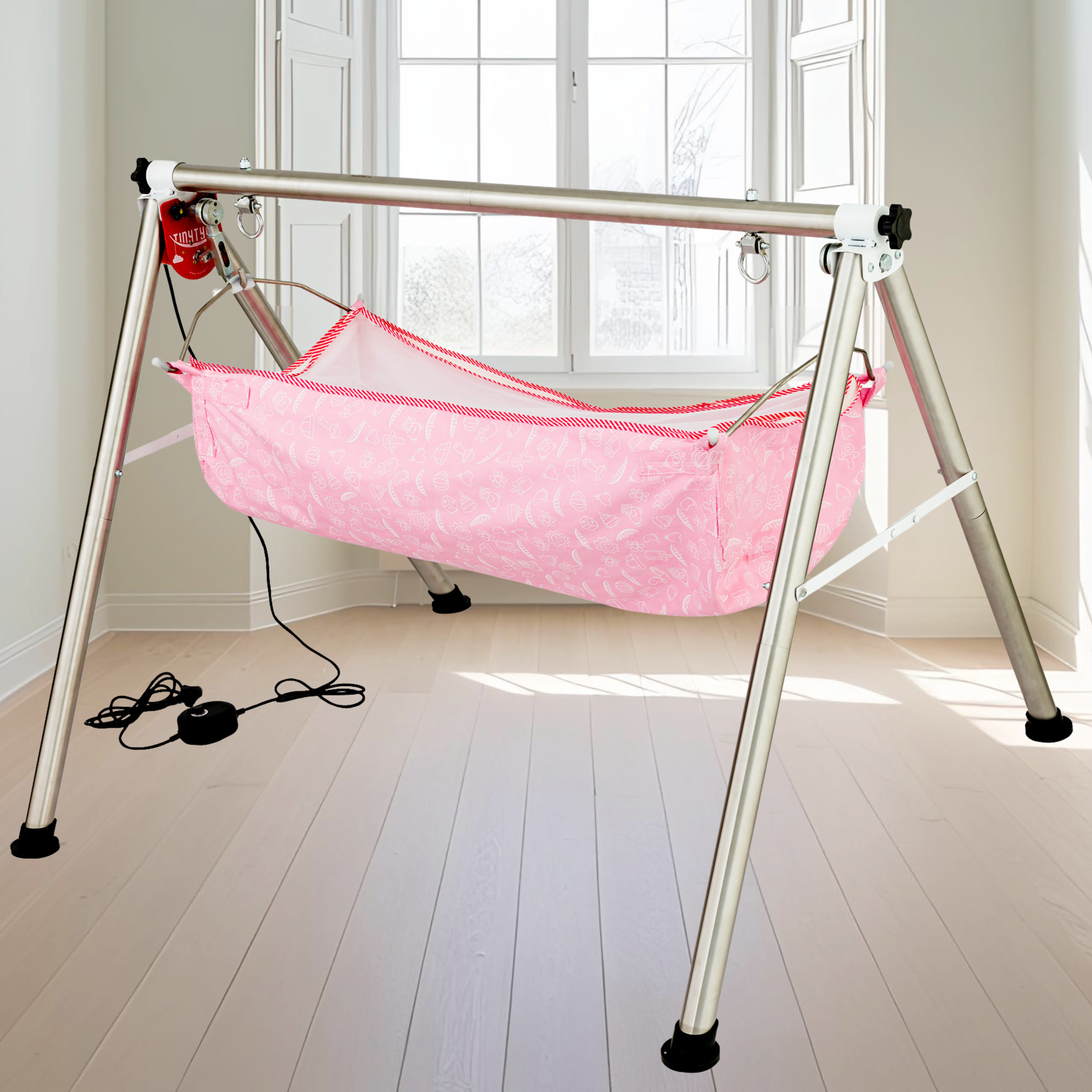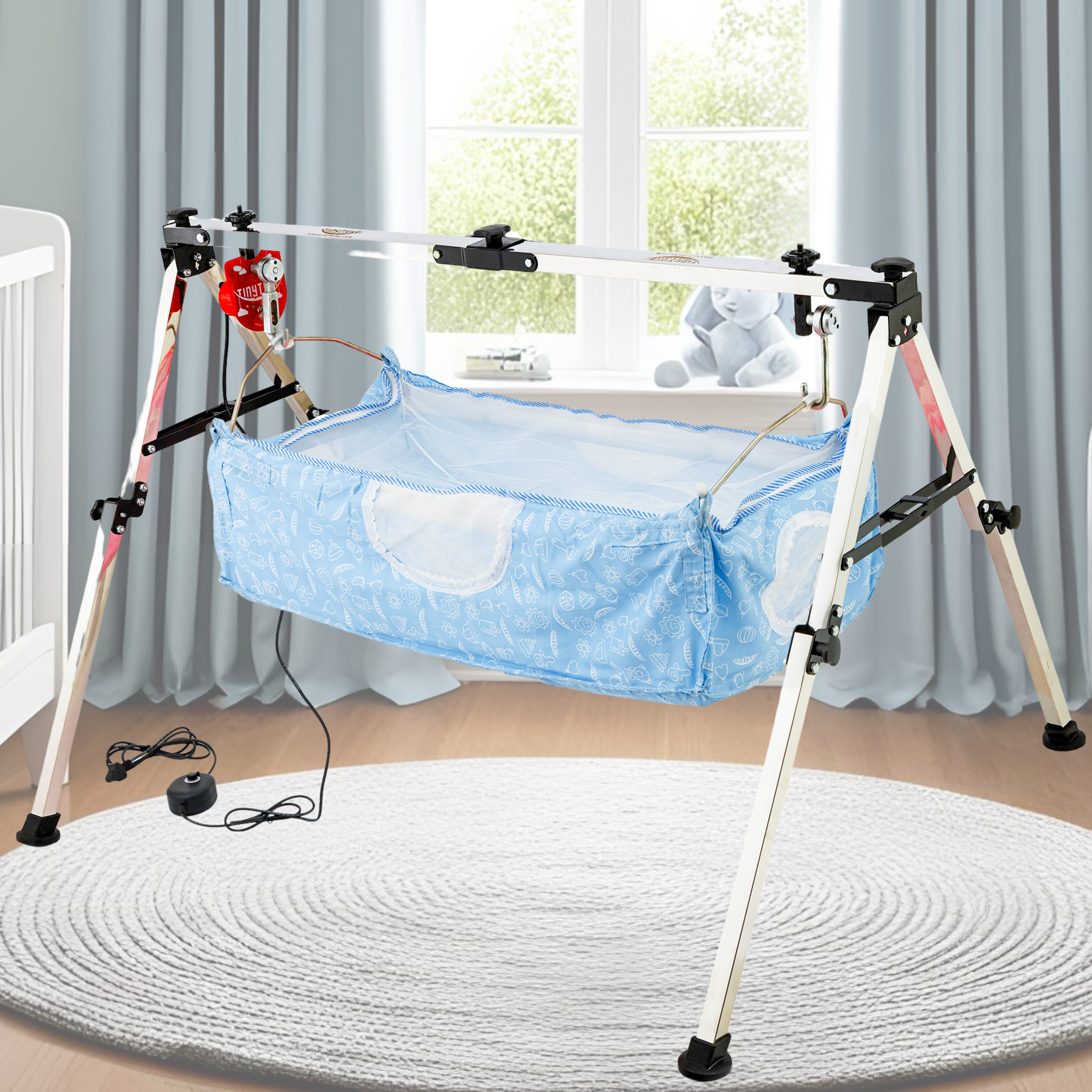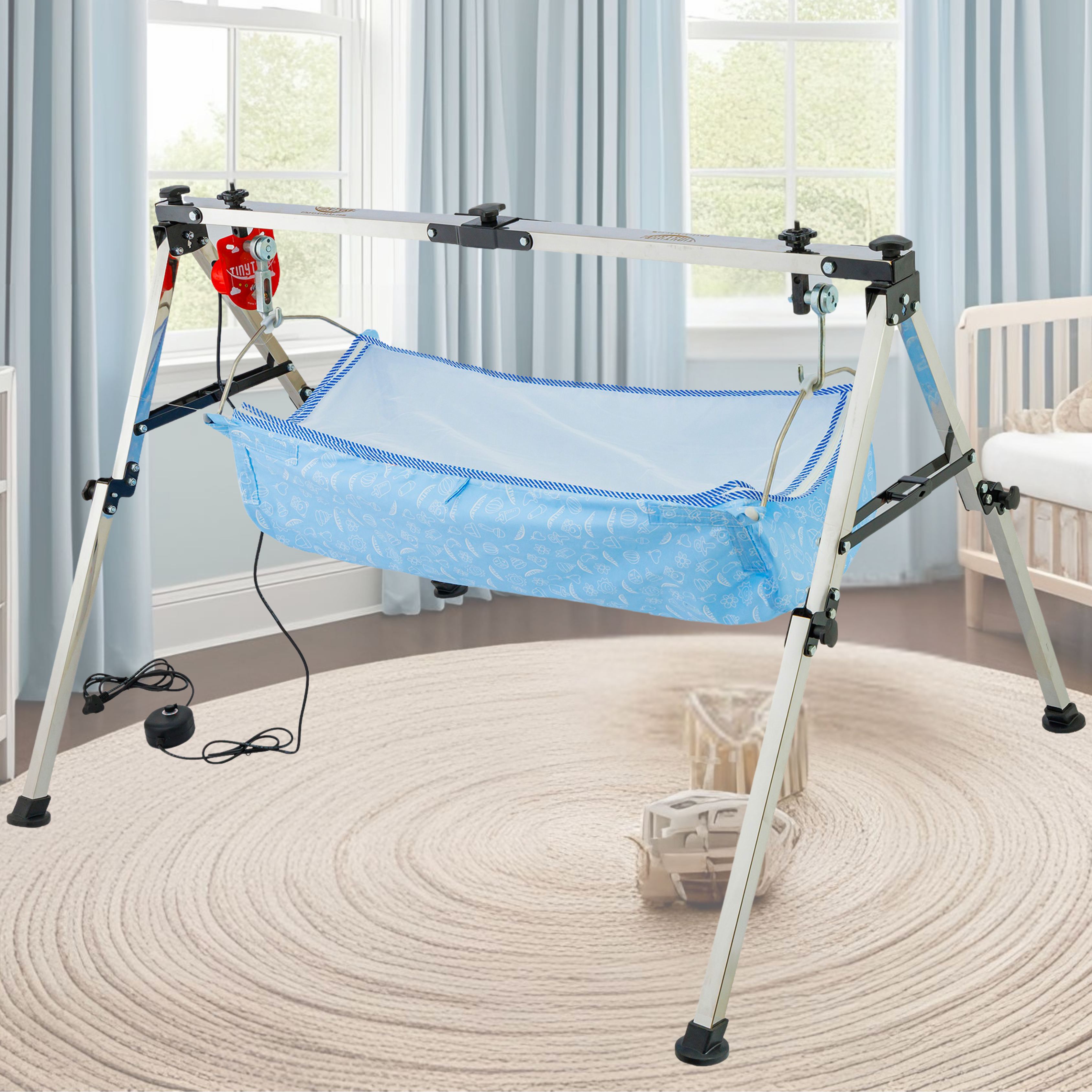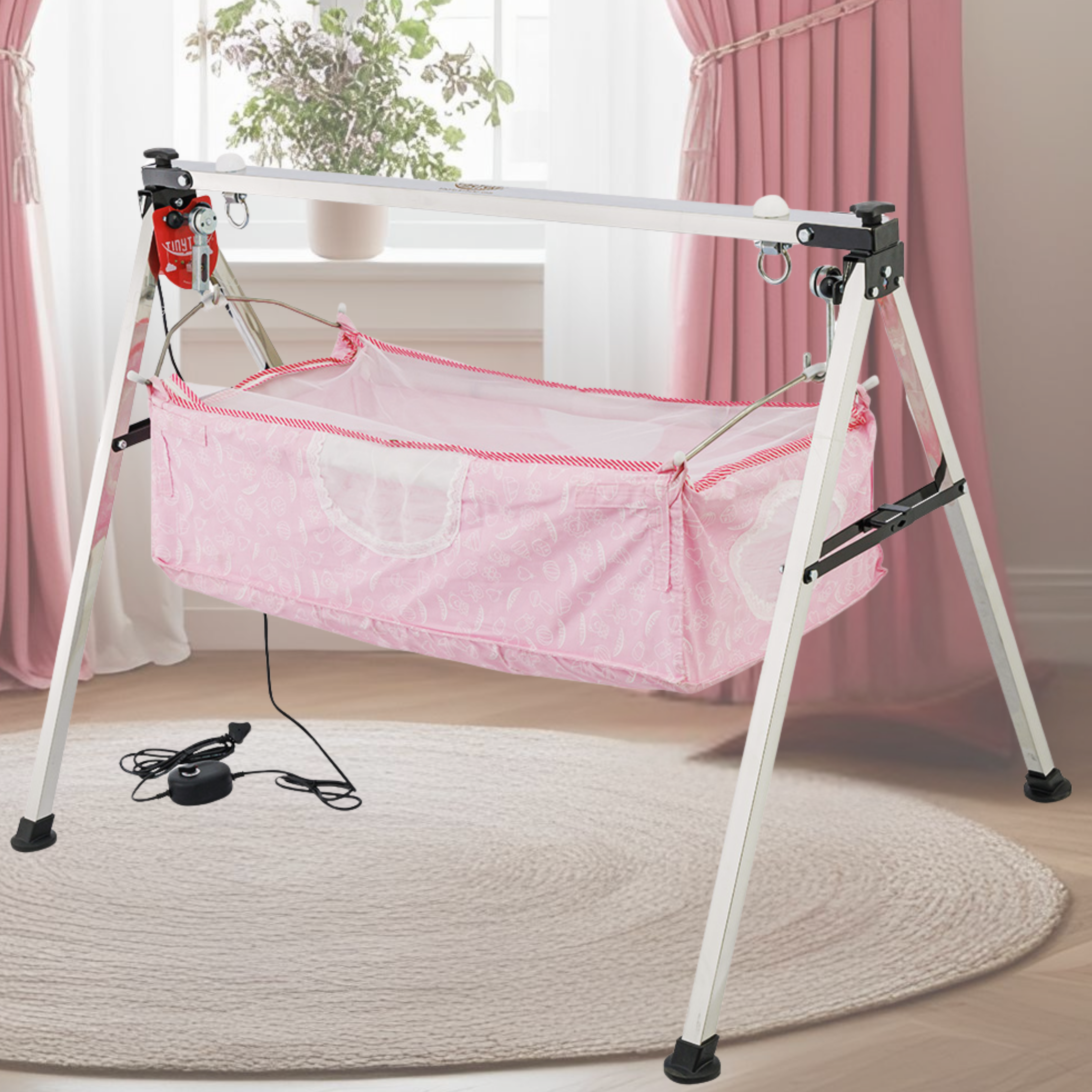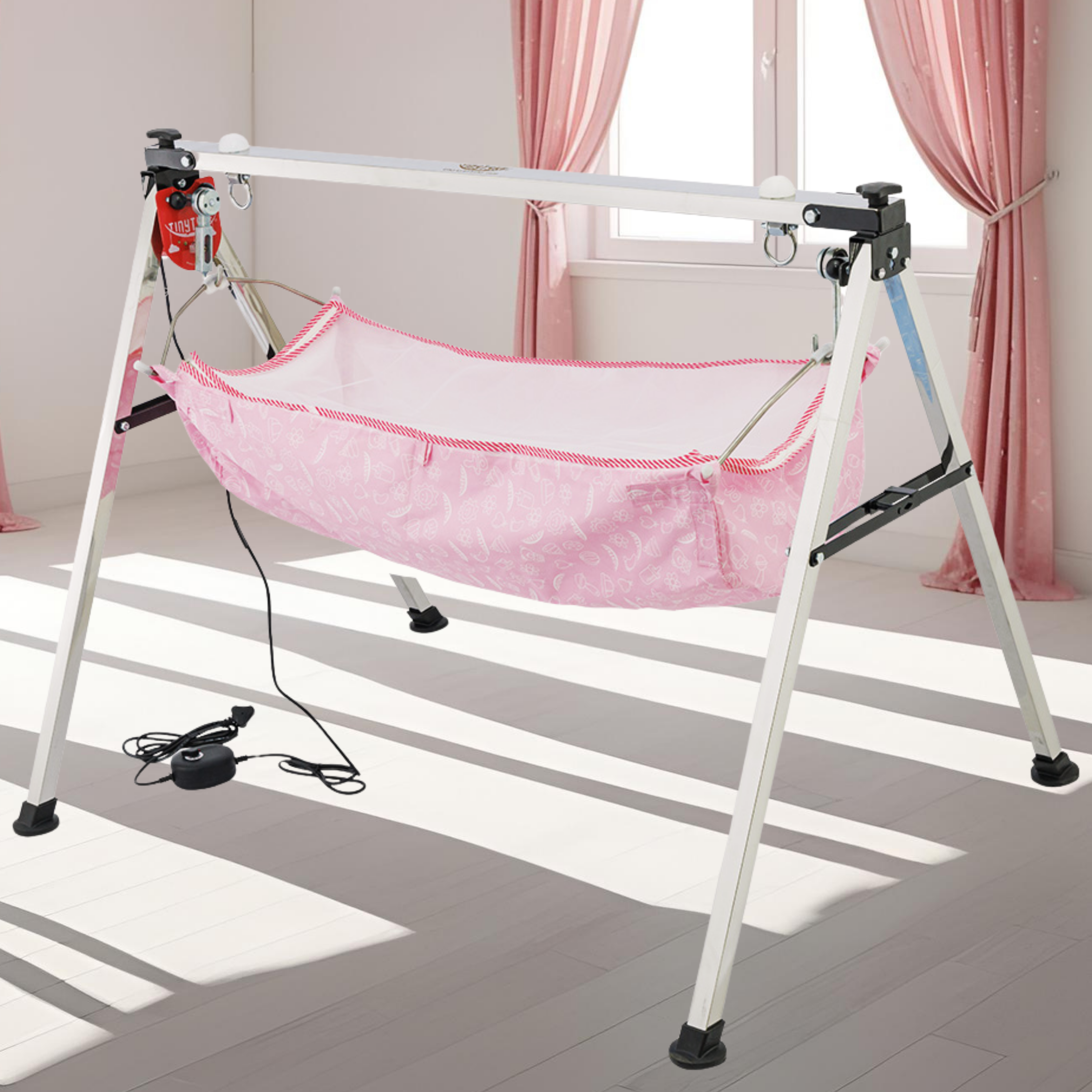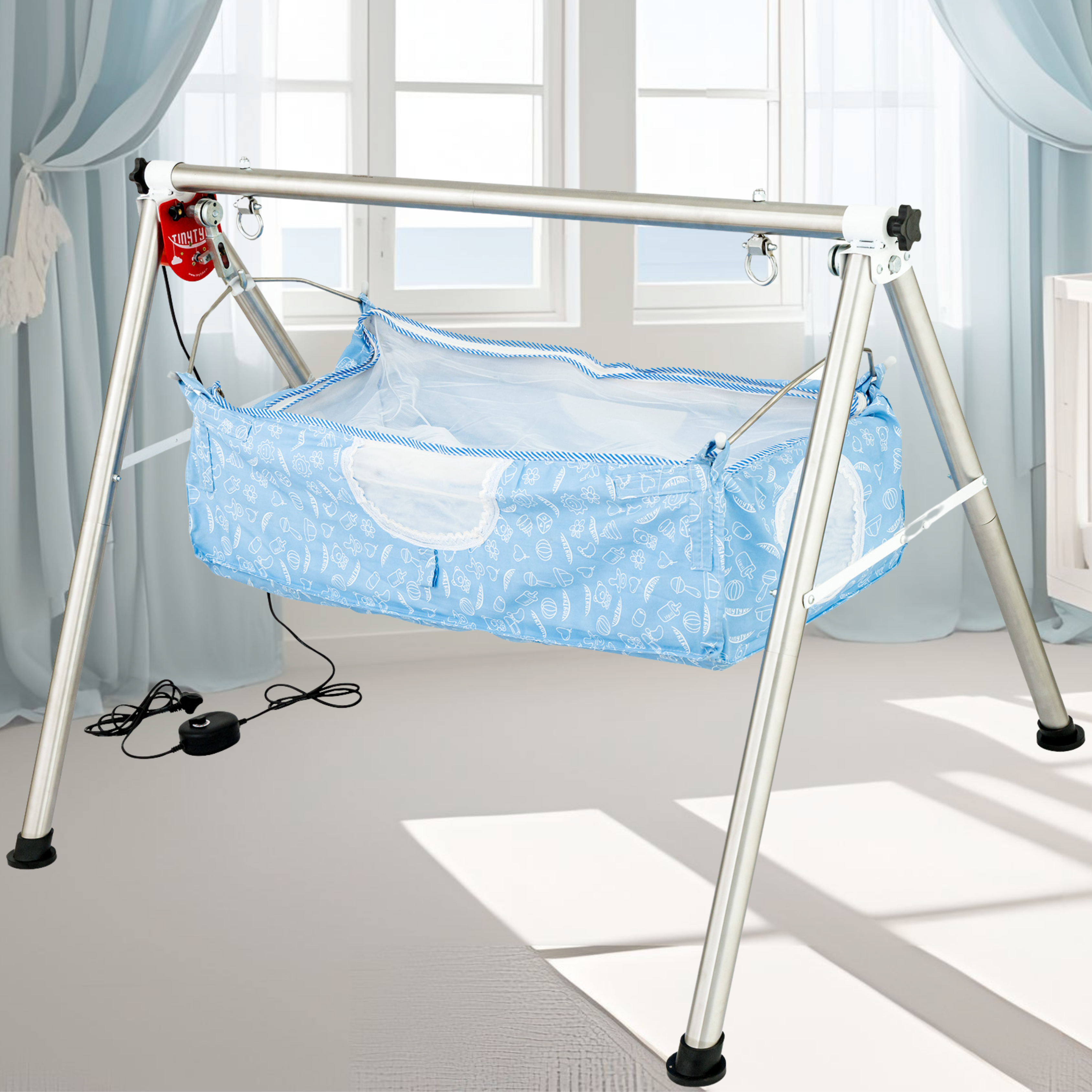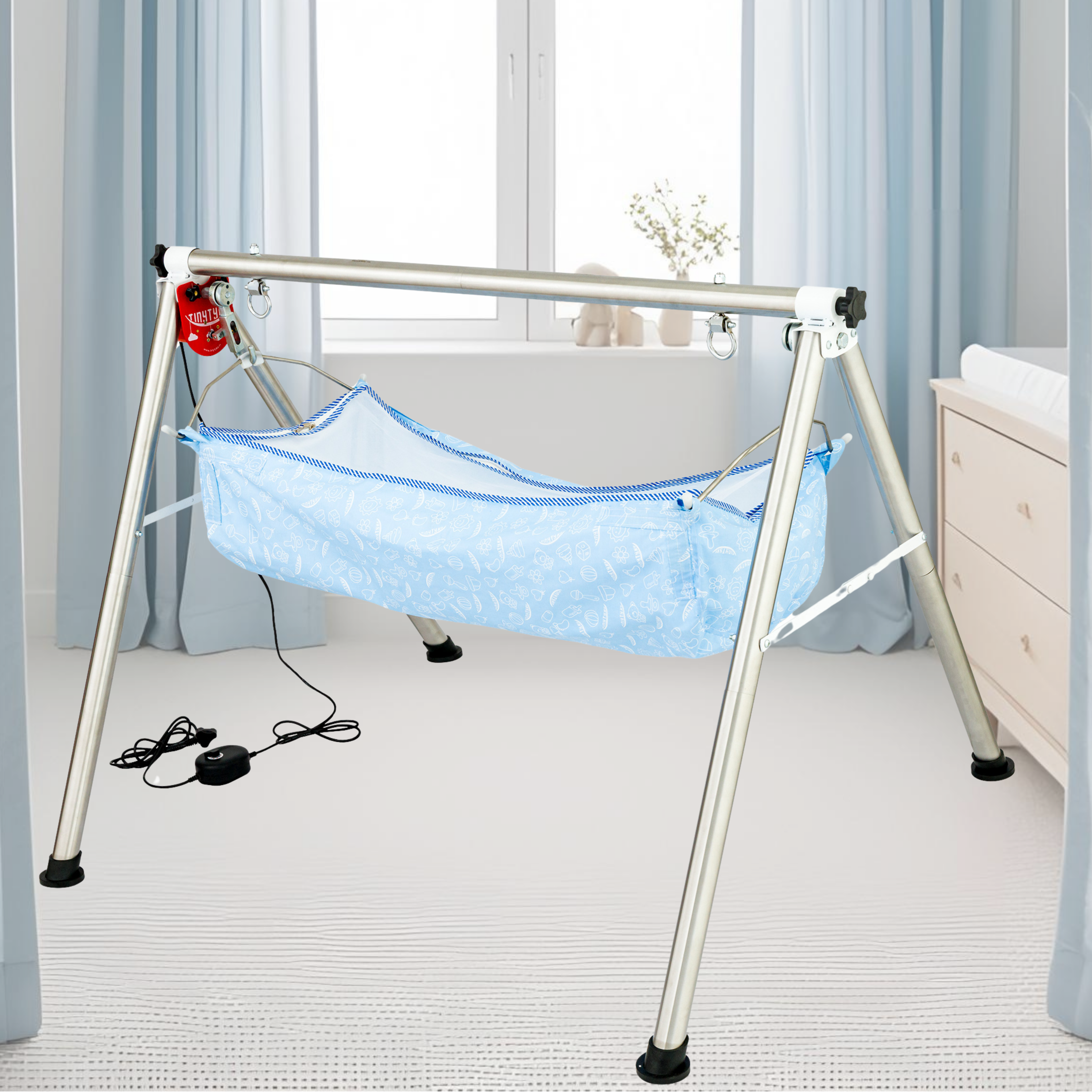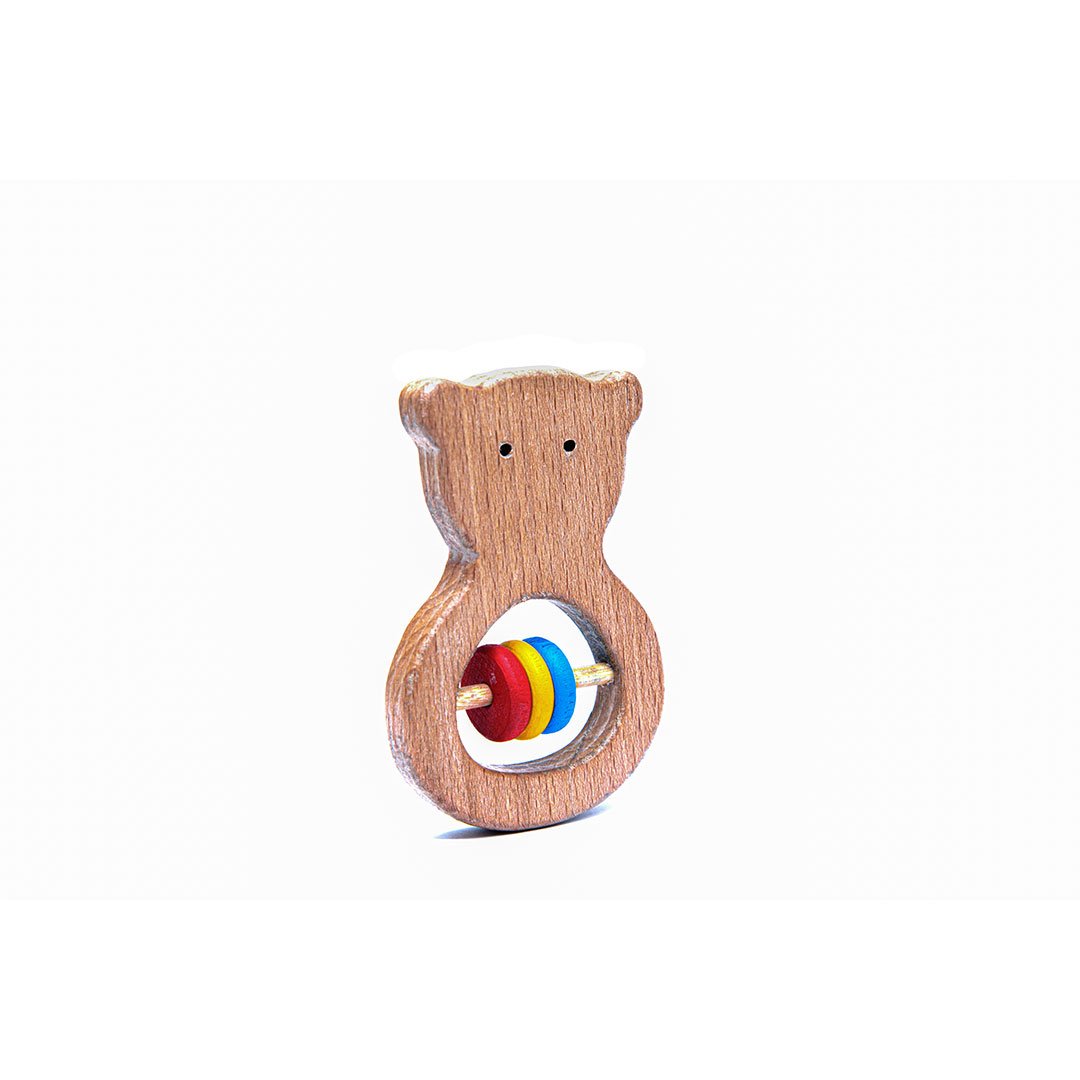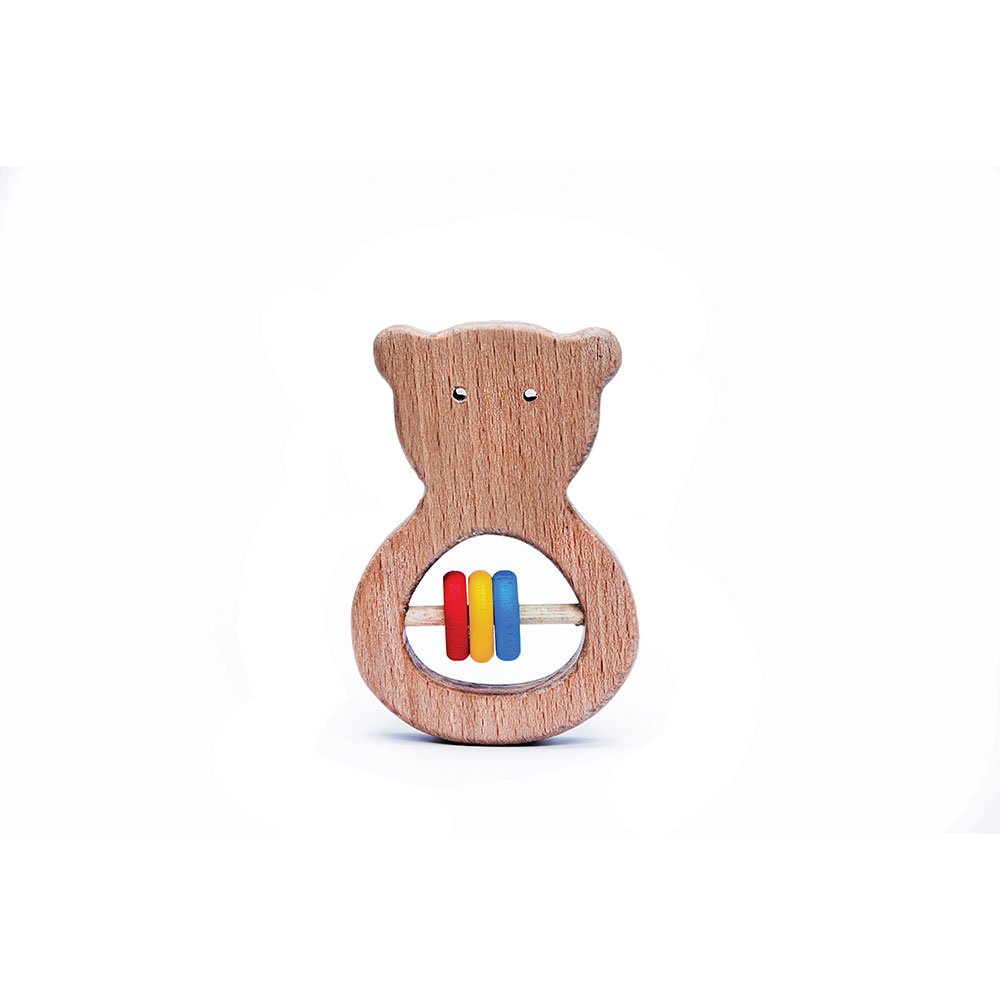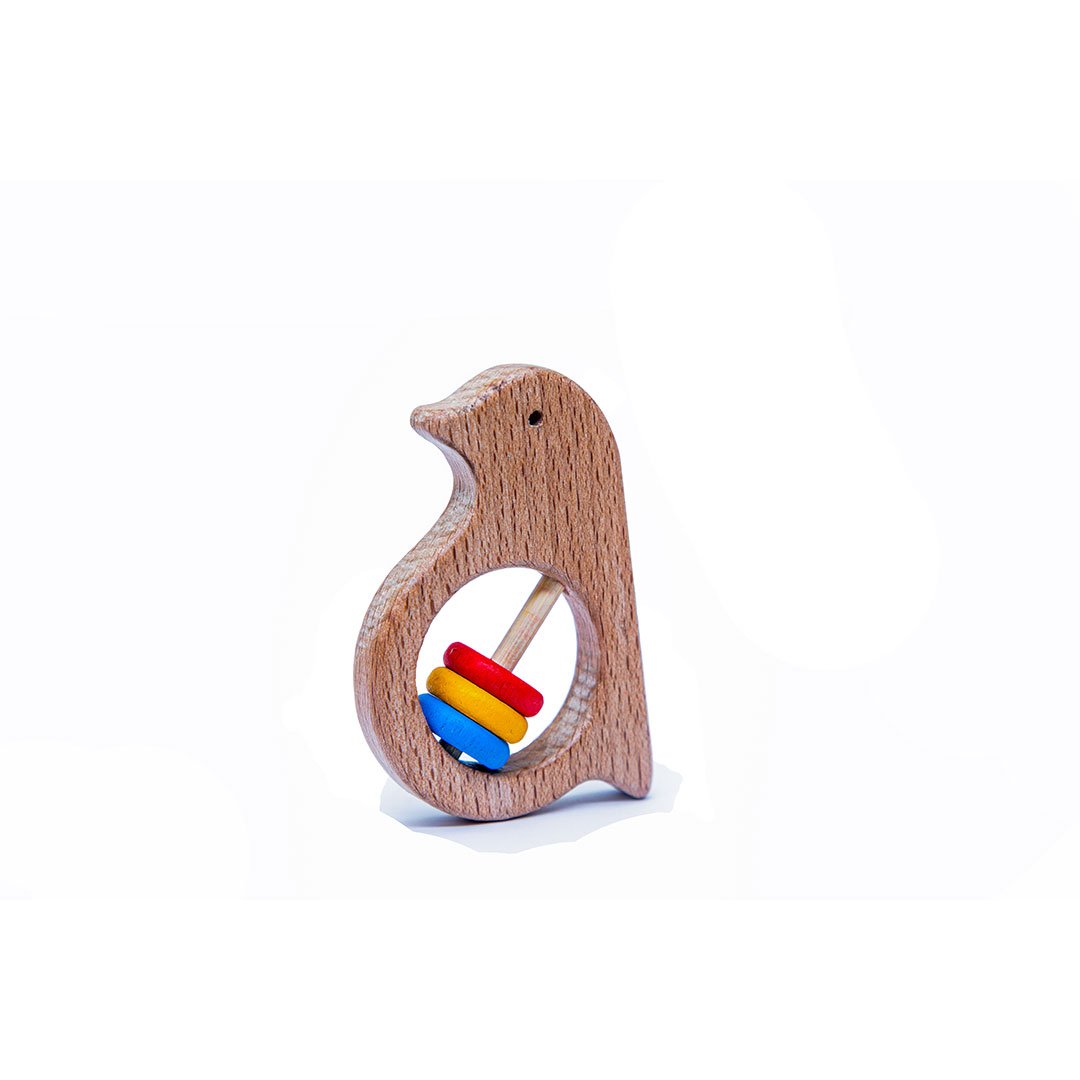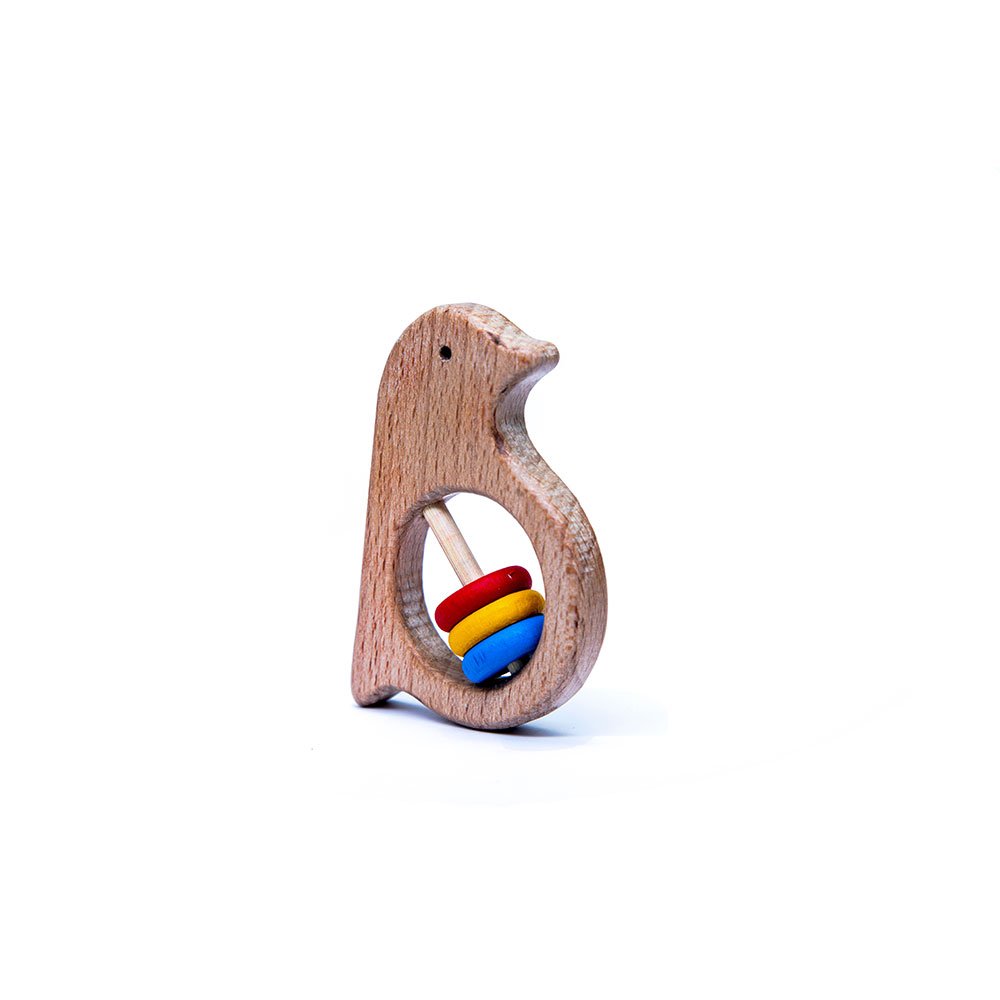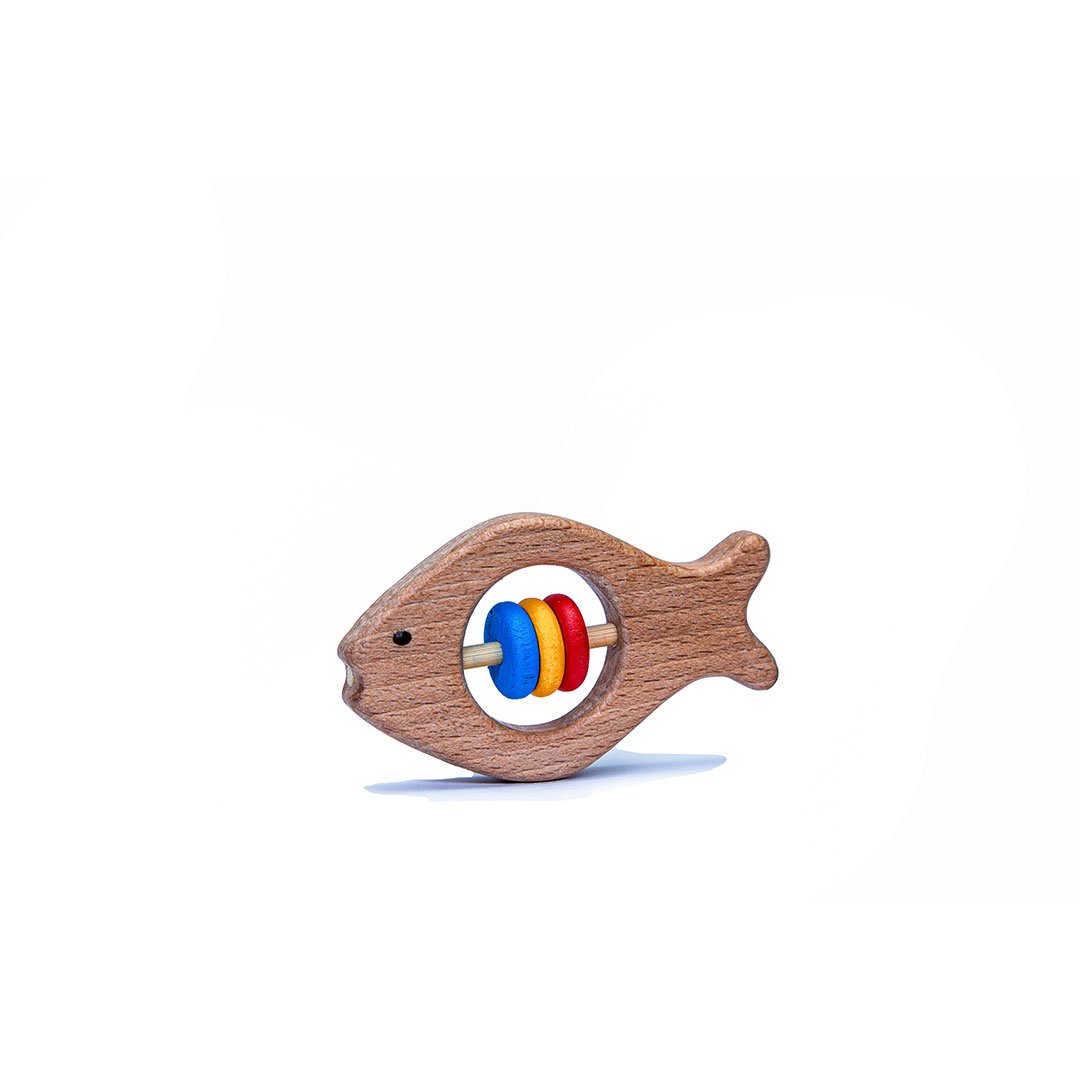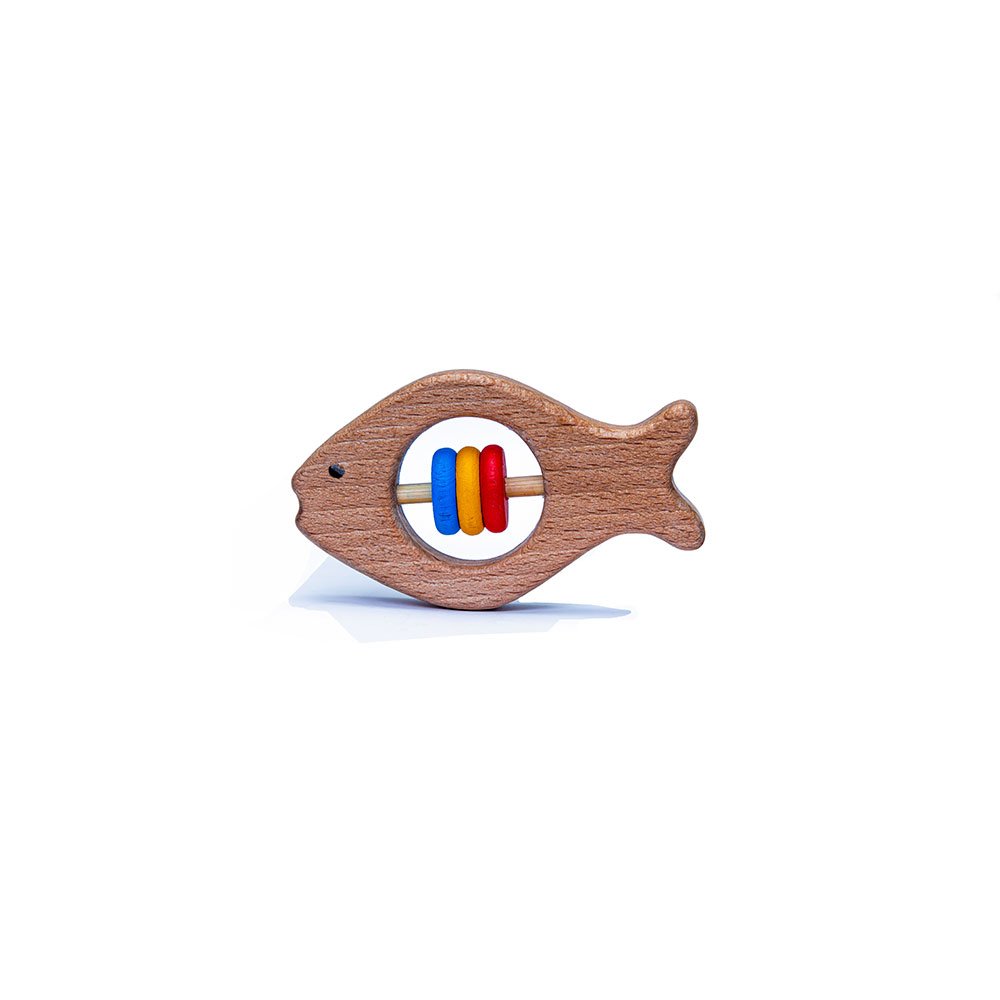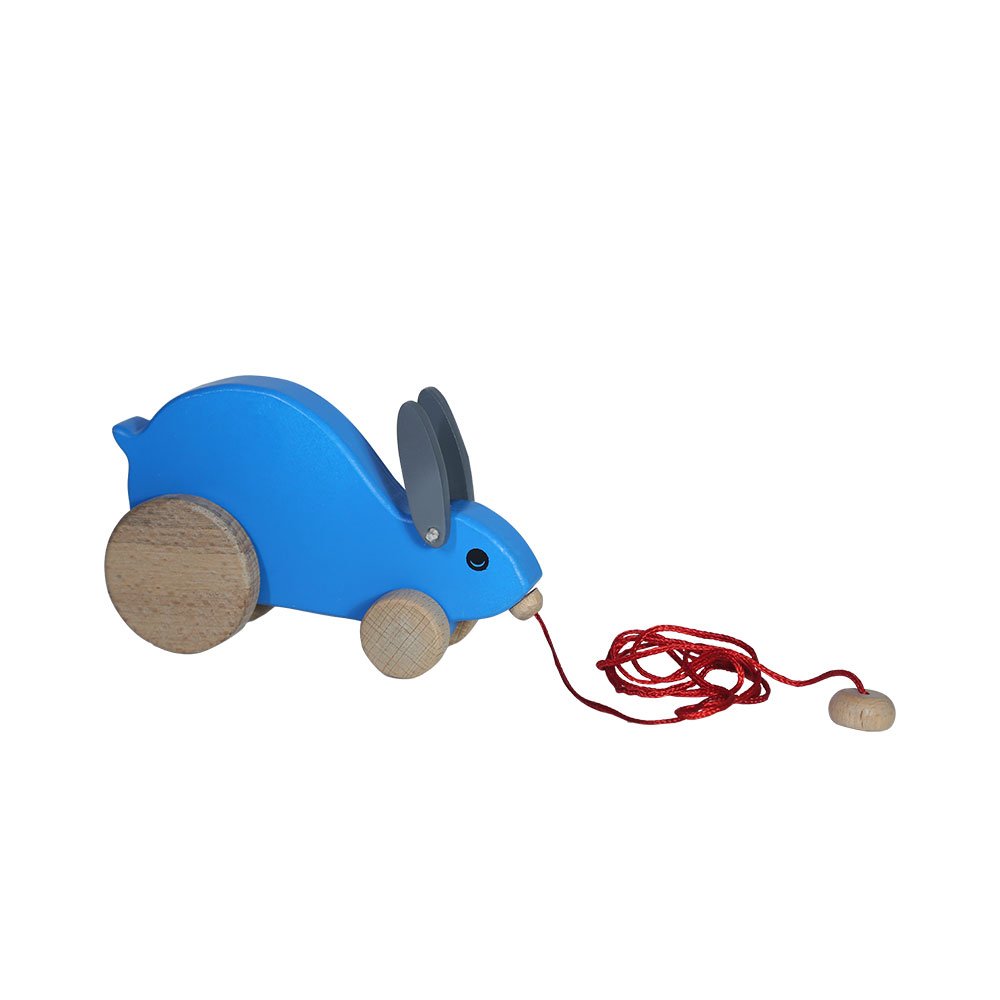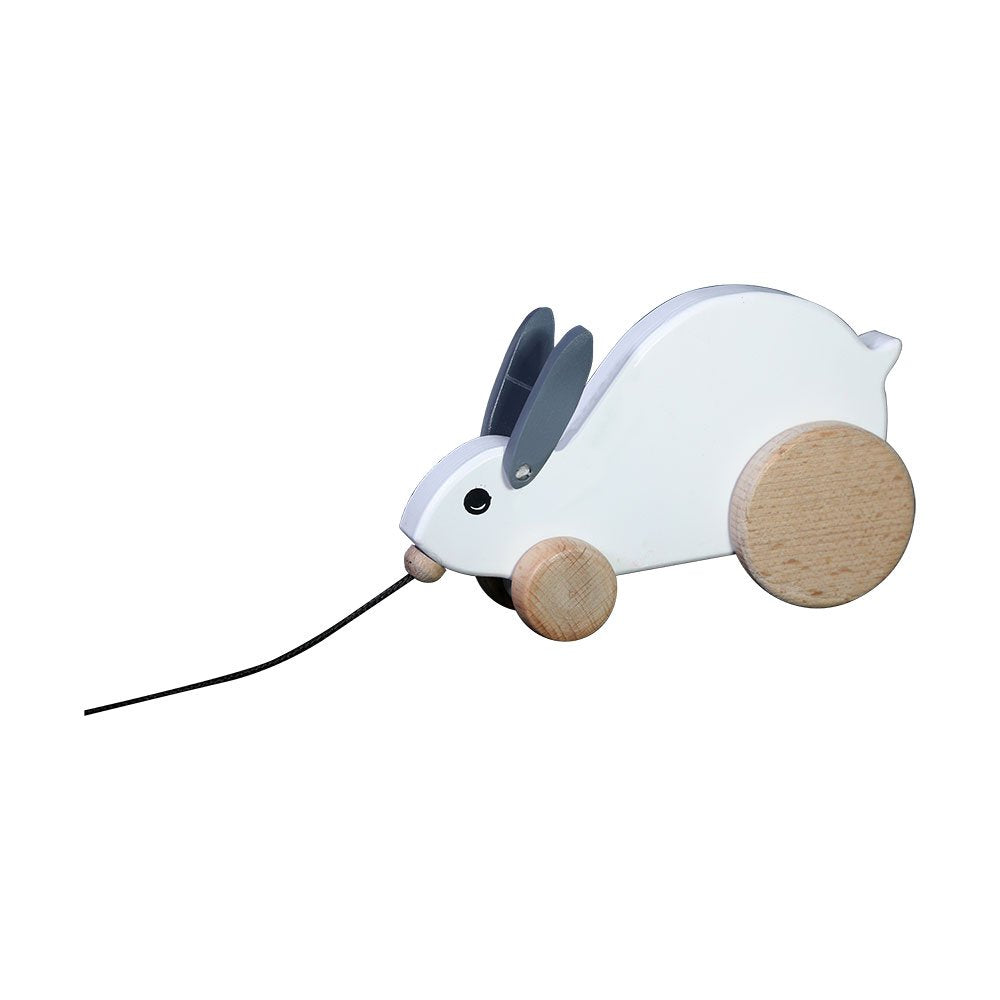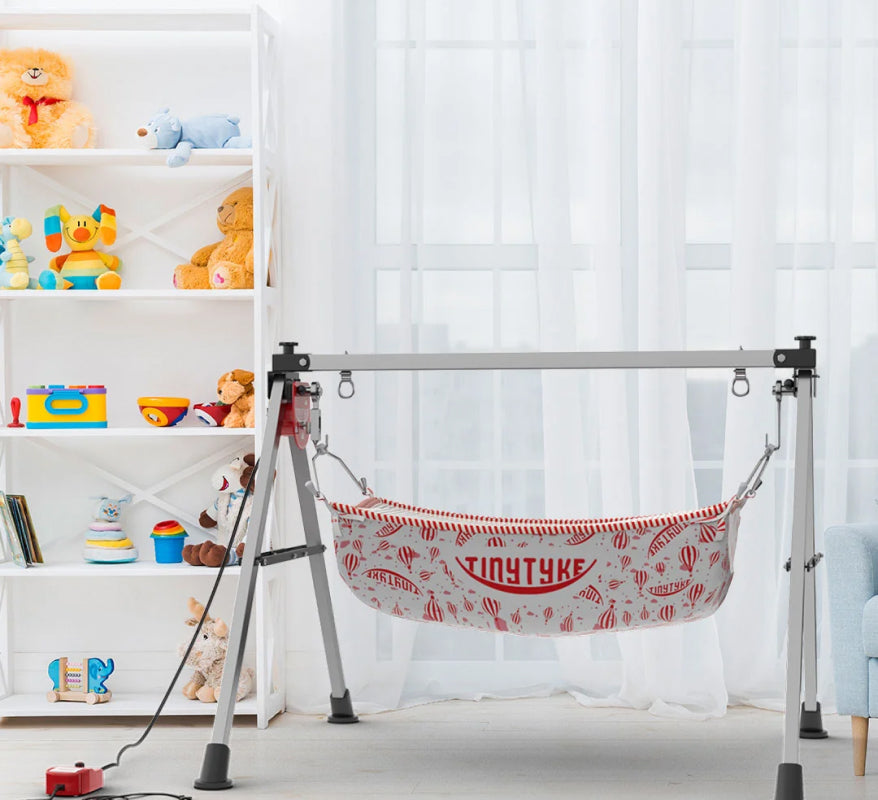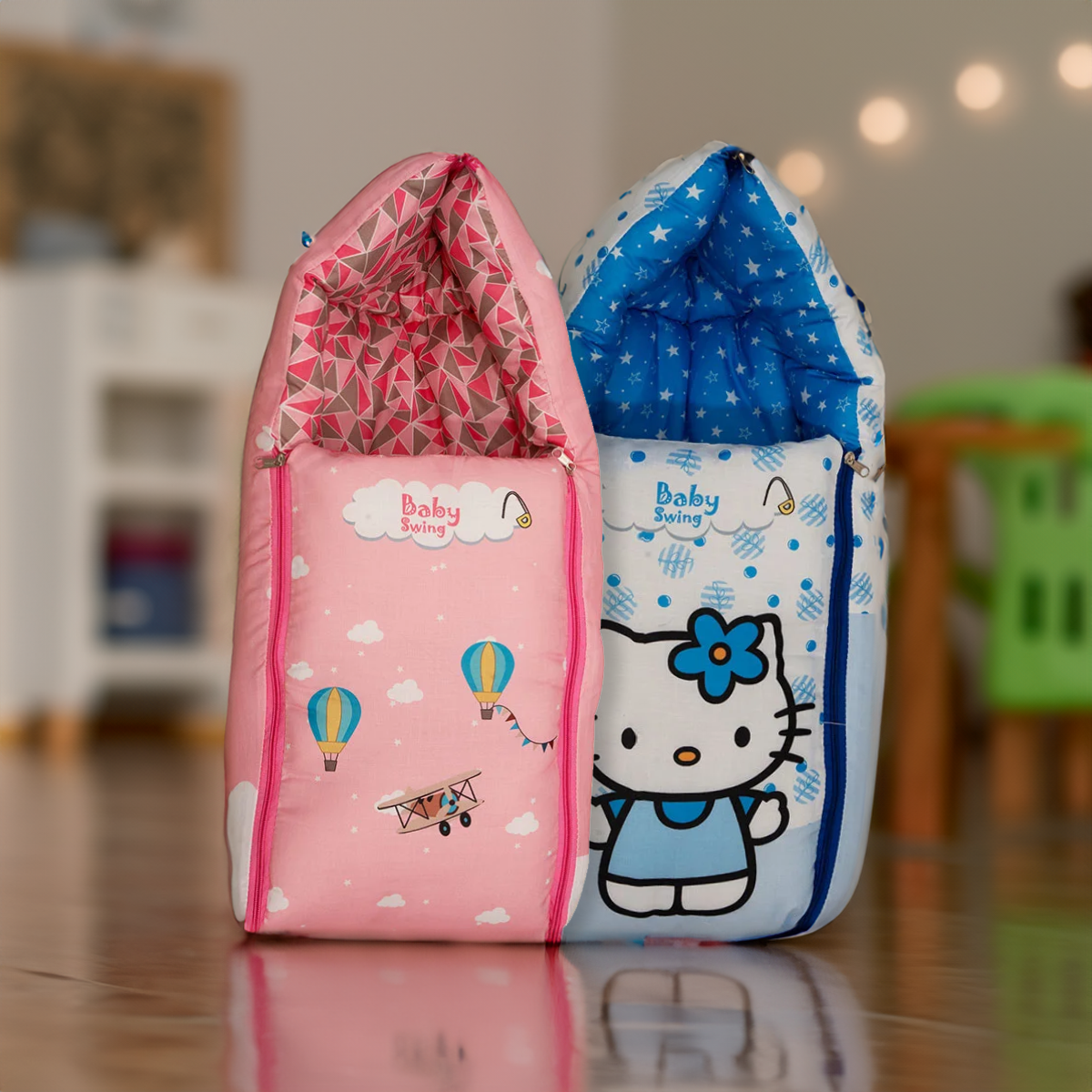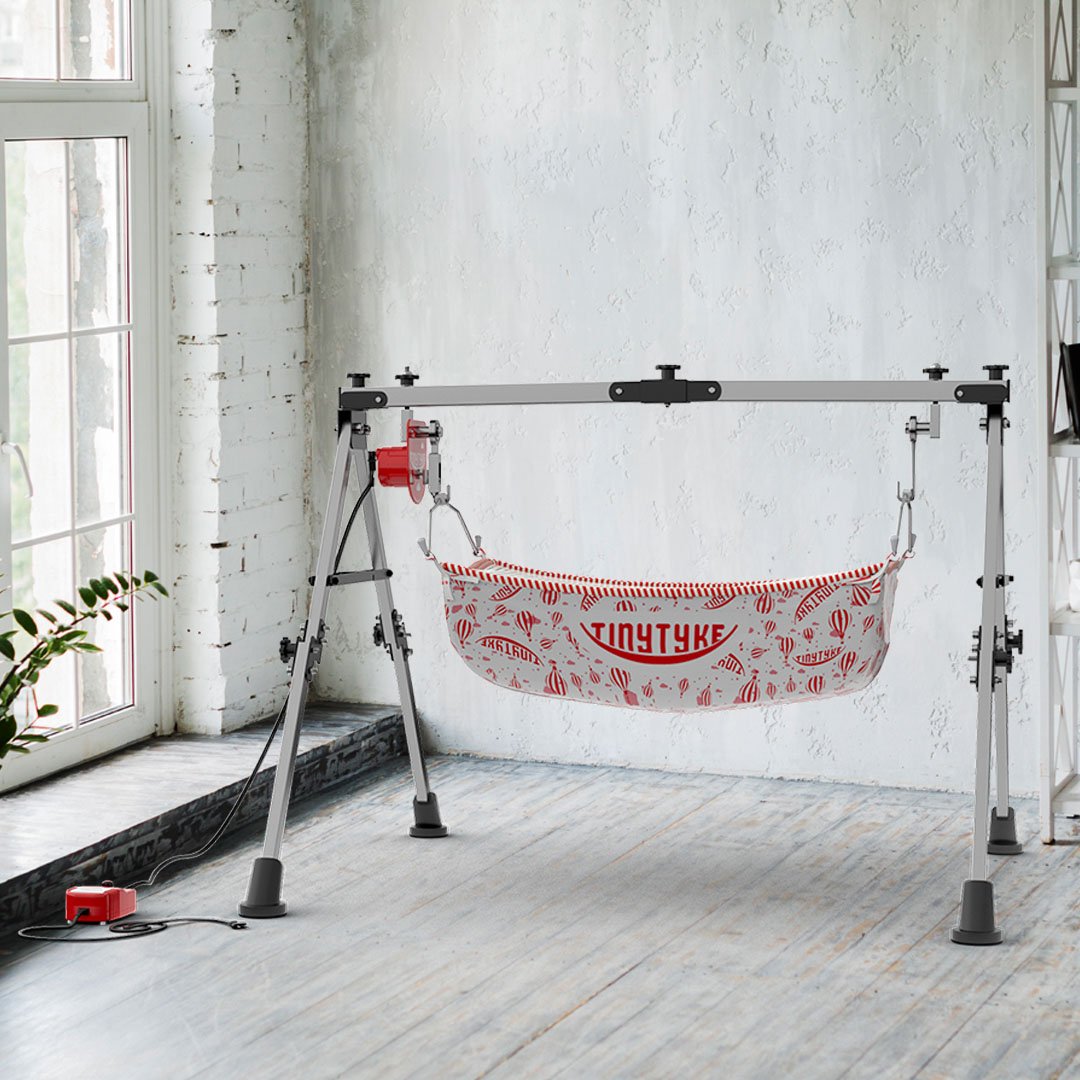
Automatic Baby Cradles
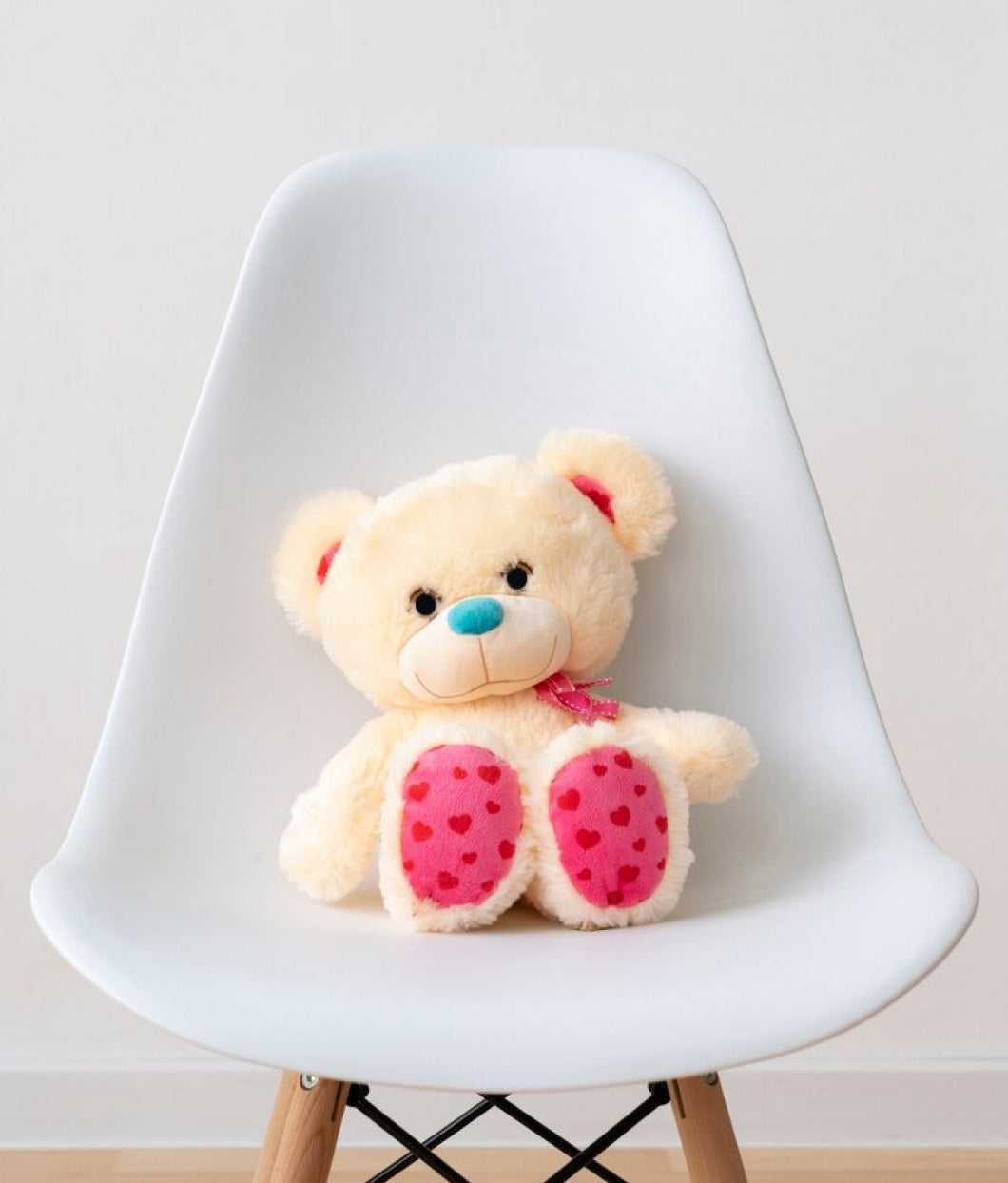
Modern toys for babies
Let customers speak for us
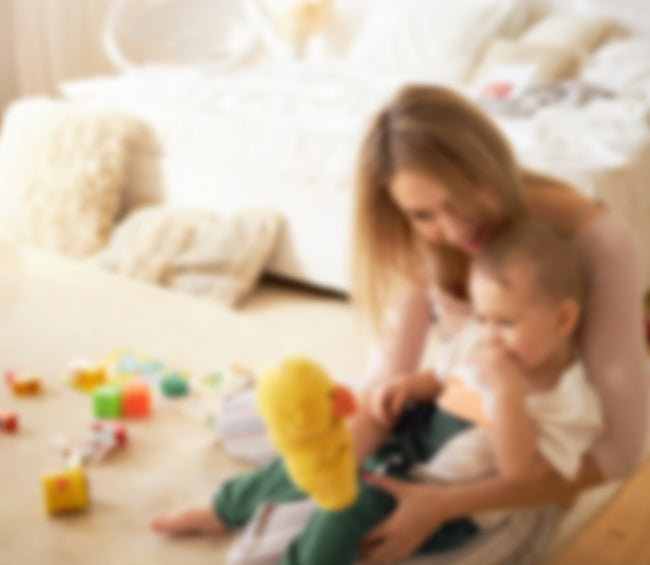
One mother. One baby. One cradle and a hundred opportunities.
“We are grateful to the parents who give their babies a Tinytyke experience, letting Tinytyke become an inseparable part of their very early childhood and putting their faith on a Tinytyke cradle“
Heta Nishil Pandya • Ahmedabad, Gujarat
From the Blog
Top Benefits of Choosing a Foldable Cradle for Baby
One of the first things on every parent’s mind is creating a cozy sleep spot for their newborn. But comfort isn’t the only thing that matters, your home and lifestyle matter too. A foldable cradle for baby easily fits both. It feels gentle and secure for your baby, and stays light, compact, and simple to tuck away or shift around. Whether you grew up seeing a traditional ghodiyu at home or you're exploring modern sleep options for the first time, the foldable versions available today blend tradition with thoughtful design. They give you the familiar rocking comfort your baby needs, while also offering the flexibility you need as a parent. Here’s a closer, practical look at why many families now prefer a foldable ghodiyu or foldable cradle for baby over the usual bulky options. A Comfortable, Familiar Rocking Motion Parents often pick a cradle for its soothing back-and-forth movement. The gentle swing can help babies relax and settle more easily, even during restless hours. With a foldable ghodiyu, you get the same familiar comfort while keeping your space flexible. Many designs mirror the rocking style of a baby swing jhula, giving babies that steady, soothing motion they naturally respond to. It’s close to the soft sway they feel when held, making it easier for them to relax and fall asleep. Easy to Fold, Carry, and Store This is the feature that truly makes life easier for parents. A foldable ghodiyu is simple to use every day - you can have it ready in minutes, fold it away when it’s not needed, and move it from room to room without any fuss. This feature really helps parents who like a neat room. Fold the cradle away during playtime or when friends come, and the room feels roomy while your baby still has a safe, comfy place to nap. It also helps during travel. Visiting grandparents? Heading out for a weekend stay? A foldable cradle for baby fits easily into the car and saves you from carrying bulky sleep equipment. Great for Parents Who Want a Ghodiyu Without the Bulk Traditional ghodiyu setups usually take up more space and stay fixed in one room. Foldable versions give parents the same rocking comfort with a lighter, compact design. You still get the long, gentle swing that ghodiyu is known for, but in a format that you can fold, shift, or even pack for short trips. A foldable ghodiyu is especially helpful for parents who don’t want to commit to a permanent setup or want something that can be used in multiple corners of the house. Perfect for Small Homes and Shared Spaces New parents often realize how quickly baby items start filling up the house. A foldable ghodiyu helps you maintain space while still giving your baby a dedicated sleep area. It’s ideal for: Apartment bedrooms Shared rooms Small nurseries Living rooms where you need flexible space Families who like rearranging their home from time to time Because it folds down easily, you don’t need to worry about it blocking walkways or staying out permanently. Safe, Stable, and Supportive Design Parents often ask whether foldable baby swing jhula are as stable as fixed ones. The answer is yes—as long as you choose a quality cradle built with strong materials and secure locking. Most foldable cradle for babies today use: Strong metal frames Smooth, rounded edges Secure joints Anti-slip bases High-quality ropes or cloth for the cradle seat Once the cradle is locked into place, it stays firm and steady. The rocking motion remains smooth and controlled, so your baby stays safe while sleeping. Many versions also mimic the structure of a baby swing jhula, where the design naturally supports the gentle back-and-forth motion babies love. Helps Babies Sleep Better Babies settle easiest when they feel secure and gently soothed. The rocking motion of a foldable ghodiyu provides that comfort without needing constant manual effort from parents. Here’s why many newborns sleep better in cradles: The swing mimics being held It helps calm startle reflex It eases colic and fussiness It creates a rhythmic pattern that babies naturally respond to If your baby tends to wake up easily or has trouble settling down, the consistent motion of a ghodiyu-style cradle often makes a real difference. Keeps the Nursery Clean and Organized A foldable cradle for baby doesn’t stay out all day unless you want it to. When you’re done using it: Fold it flat Slide it behind a door Store it under the bed Keep it in the corner without taking up space This helps keep the nursery neat and gives you more room during playtime or feeding routines. Many parents love how clutter-free their rooms feel after switching to foldable baby swing jhula options. Budget-Friendly Without Compromising Comfort Most foldable cradle for baby won’t break the bank, yet they are built strong and safe. Parents who love the swing of a ghodiyu but don’t want a bulky setup will find them a perfect blend of comfort, portability, and affordability. They’re durable enough to last through the newborn and infant months, and many families even save them for future siblings. Why Foldable Cradles Are Becoming a Parent Favorite There’s a reason foldable baby swing jhulas are so popular. They’re soft and cozy for babies, easy to move, and just fit naturally into your day. Safe, practical, and comforting they really do make parenting smoother. You get: Soft rocking comfort Easy storage Travel-friendly design A familiar ghodiyu feel A clean and clutter-free space Whether you use it during naps, nighttime sleep, or fussy evenings, a foldable cradle becomes one of the most useful baby essentials you own. What Makes a Foldable Ghodiyu Worth Considering A foldable cradle for baby gives you the best of both worlds. Your baby gets the gentle rocking of a traditional baby swing jhula, and you get something compact and easy to move. At home, at a relative’s, or on the go, it’s an easy way to give your little one a cozy place to sleep. If you’re searching for a foldable cradle for baby that works for both your baby and your space, take a look at TinyTyke’s collection of foldable ghodiyu and find the one that fits your lifestyle.
Learn moreHow an Automatic Cradle Can Bring More Calm to Your Routine
Naps can be peaceful, but getting your baby to fall asleep isn’t always easy. Some days you’re rocking them with one hand while trying to finish everything else with the other. That’s why many families turn to an automatic cradle. Its gentle, steady motion feels familiar to babies, so they relax faster and stay calm for longer. No matter what you call it, automatic cradle, electric ghodiyu, or automatic baby cradle—it’s really just about one thing: helping your baby feel calm while giving you a little break. When naps, chores, and everything else are piling up, this small help can make your day a lot easier. Understanding What an Automatic Cradle Really Does Babies love gentle, steady rocking it feels familiar and soothing. An automatic cradle for baby quietly sways them, helping your little one relax while giving you a short break. In many families, you’ll also hear the term electric ghodiyu, especially in regions where traditional swinging cradles have always been part of baby care. The electric version simply brings automation to a familiar design. Here’s what these cradles typically offer: Smooth, rhythmic swinging Adjustable speed levels Comfortable seating or bedding space Sturdy frame for safety Sometimes extra features like timers or soft music The goal isn’t to replace a parent’s touch, but to offer support during naps and fussy moments. Why Gentle Motion Matters for Babies Before birth, babies spend months experiencing movement. The soft sway of walking, turning, and daily activity becomes part of their natural environment. After birth, motion continues to feel familiar and soothing. That’s why rocking remains one of the most effective ways to calm a baby. An electric ghodiyu builds on this idea by providing: A steady rhythm that keeps babies relaxed A safe, controlled pace that avoids overstimulation Predictable movement that supports nap routines For newborns who take time to settle or need extra help transitioning into sleep, this gentle motion can make a noticeable difference. How an Automatic Cradle Supports Your Routine Most parents admit those first weeks are basically one long loop of calming the baby. An automatic cradle for baby can’t replace that, but it does help smooth things out and give you a tiny breather here and there. 1. Helps Babies Fall Asleep More Easily The continuous, even motion helps babies drift off without constant rocking. Once they’re comfortable, the automatic baby cradle takes over the repetitive part while you attend to other tasks. 2. Offers Hands-Free Soothing There are moments when you just need both hands whether you’re mixing a bottle, folding a few clothes, or taking a minute for yourself. The electric ghodiyu keeps your baby settled and close while you get those things done. 3. Supports Short Naps and Transitions Some babies wake up easily when the motion stops. Automatic cradles maintain the rhythm long enough to help them transition into deeper sleep. 4. Reduces Physical Strain Your arms and back can get tired from constant rocking. An automatic cradle steps in to take some of that pressure off, which really helps during late nights or low-energy days. Types of Movement to Expect Not every automatic cradle works in the same way. Understanding the style of movement can help you choose the one that fits your baby’s comfort. Type of Movement How It Works Best For Traditional ghodiyu swing Back-and-forth cradle movement Families used to traditional cradle designs Multi-level speed controls Adjustable motion levels Babies sensitive to speed changes Timer-based swings Motion stops after a set duration Parents who want controlled sessions Each type supports comfort, but your routine and space will guide which one feels right. What to Look for Before Choosing One A few practical elements make a big difference when selecting an automatic cradle for baby: Sturdy design: A strong frame ensures smooth, safe movement. Comfortable bedding: Soft, breathable fabric helps babies stay content. Quiet motor: A low-noise system keeps naps peaceful. Speed variations: Helps you adjust the motion based on your baby’s mood. Easy assembly: Simplifies setup for busy parents. Safety features: A secure seat or mattress surface prevents slipping. These details help create an experience that’s both safe and soothing. Making It Part of Your Everyday Rhythm Introducing an automatic baby cradle into your daily routine doesn’t need to feel complicated. In most homes, it becomes a natural part of the flow. Try placing it where you spend most of your time near the living room, next to your work desk, or close to the kitchen. This keeps your baby comfortable and in sight while you move around. Many parents also find it helpful during: Early morning wake-up stretches Evening wind-down when the baby is fussy Short day naps Times when visitors arrive and routines shift It works best as a support, not a complete sleep solution. Babies still need your touch and attention—the electric ghodiyu just helps cover the gaps when you need a break. A Quick Overview of the Benefits Here’s a clear look at what an automatic cradle adds to your day: Consistent, soothing motion Easier naptime transitions Reduced physical strain on parents Hands-free comfort during busy moments Familiar movement that mirrors natural rocking Helpful during both daytime and evening routines It’s a small addition that brings comfort to your baby and calm to your schedule. Making Everyday Moments a Little Easier In those first few months, every parent wishes for a calmer, more predictable routine. An automatic cradle gives your baby gentle comfort while giving you a little breathing room during the day. It doesn’t replace the closeness and care you give, but it quietly helps make things easier. With its steady motion and thoughtful features, it becomes a little companion that smooths out the everyday moments. If you’re exploring options for an automatic baby cradle to keep your baby comfortable while fitting your home, TinyTyke has a range of designs worth checking out. Browse through the range to find the right cradle and bring more ease into your daily rhythm.
Learn moreFrom Safety to Comfort: Key Features Every Baby Cradle Should Have
Choosing a baby cradle ends up being a bigger decision than it looks at first. It’s not only for quick naps; it kind of becomes part of your baby’s daily routine and even your own calming moments. Whether you’re thinking about a traditional ghodiyu for baby, a gentle baby cradle swing, or one of those modern swing cradle options, it really helps to know what features actually matter before picking one. This guide explains the core factors to consider - safety, comfort, and practical design so you can make an informed decision when choosing a cradle. Why the Right Features Matter Babies spend a lot of their early months just sleeping or lying down. A baby cradle swing that’s put together with some thought can help them feel settled, give them better nap time, and make things a bit easier for parents during the day. There are many styles - classic cradles, hands-free swings, and modern versions of the ghodiyu. The important thing is knowing what actually makes a swing cradle for baby useful. 1. A Strong and Stable Frame The first thing to look for is the structure. A strong, well-balanced frame keeps the ghodiyu for baby steady during movement, especially in a swing-style baby cradle. What to check: Solid metal or hardwood frame Anti-slip base Balanced design to prevent tipping Smooth edges with no sharp corners A stable base gives you one less thing to worry about while your baby rests. 2. Comfortable and Breathable Bedding Softness matters, but so does airflow. Babies rest better when the mattress and fabric help regulate temperature. Good bedding should include: Firm but cushioned support Breathable fabric Easy-to-remove and washable covers Avoid mattresses that are too plush, as they can affect posture and safety. 3. Smooth, Gentle Swing Motion If you're choosing a baby cradle swing, the movement should feel natural and calming. Babies are used to gentle swaying from their time in the womb, so a baby cradle that mimics that rhythm helps soothe them faster. Look for: Smooth back-and-forth movement Controlled swing speed No jerky motions Quiet operation This feature is especially helpful during evening fussiness or short daytime naps. 4. Secure and Baby-Friendly Materials Every part of the baby cradle should be safe for delicate skin and daily use. Good materials also last longer and stay comfortable over time. Ideal material features: Certified baby-safe fabrics Non-toxic paint and finishes Breathable mesh or cloth sides Sturdy stitching and reinforced support A safe environment helps your baby settle without discomfort. 5. Proper Locking and Safety Mechanisms Safety locks are essential in any swing cradle for baby. They prevent accidental movement and keep the cradle still when needed. Helpful safety additions include: Swing lock for stationary use Firm connectors and joints Secure latch points No loose parts or wires A swing lock is useful even when the cradle is mainly used for rocking. 6. Easy Assembly and Maintenance A baby cradle becomes part of your daily life, so convenience matters. You shouldn’t have to wrestle with complicated parts every time you wash the bedding or move it across the room. Useful convenience features: Tool-free or simple assembly Lightweight frame Washable liners Easy access to all parts The easier it is to maintain, the more you’ll actually enjoy using it. 7. Good Ventilation Around the Baby Cradle Airflow is important for comfortable sleep. Cradles with mesh sides or breathable fabric help keep your baby cool and reduce overheating. Ventilation improves: Comfort during naps Skin breathability Natural airflow without extra effort This becomes especially important during warm weather or longer rest periods. 8. Age-Appropriate Capacity and Design Every baby cradle swing has a safe weight limit and recommended age range. Choosing the right size ensures motion stays smooth and the cradle remains safe. Check the details for: Weight capacity Mattress size Depth of the cradle Recommended age range These small specifications make a big difference in safety and comfort. A Quick Comparison of Key Features Here’s a simple overview to help you understand what matters most: Feature Why It Matters What to Look For Frame stability Prevents tipping and wobbling Heavy-duty frame, anti-slip base Bedding comfort Helps baby sleep better Breathable, firm, washable Swing motion Soothes the baby naturally Smooth movement, quiet design Safety locks Keeps the cradle secure Strong latches and connectors Material quality Protects delicate skin Non-toxic, soft fabrics Ventilation Prevents overheating Mesh sides, airflow-friendly design Use this list as a quick guide while comparing different baby cradle styles. Choosing a Baby Cradle That Brings Peace and Comfort The best cradles combine comfort, safety, and simple design for a space your baby can trust. Whether it’s a traditional ghodiyu for baby or a modern baby cradle swing, practical features keep your baby secure and help parents through the day. A baby cradle that makes sleep and soothing easier becomes more than furniture—it becomes part of the calm at home. For those looking for cradles that combine safety and comfort, check out Tinytyke's collection of swing cradle for baby with a wide range of options. Choose one that suits your baby and makes daily life a little easier.
Learn more
Free Shipping
On All Orders

Crafted with Love!
Made in India

Easy Returns
Easy return policy

Secure Checkout
100% Payment Protection


